
Design for Human Autonomy
Siri, how am I?
Guest authors: Daan Doeleman, Donovan van der Haak, and Giovanni Prins
When22 April 2025

Designing for Whom? Against the One-World Ethics of Technology
Guest author: Jean-Miguel Hamm
When18 April 2025

User ethics: from individual responsibility to collective action
Guest author: Daniël E. Brouwer and Suzanne Galletly
When18 April 2025
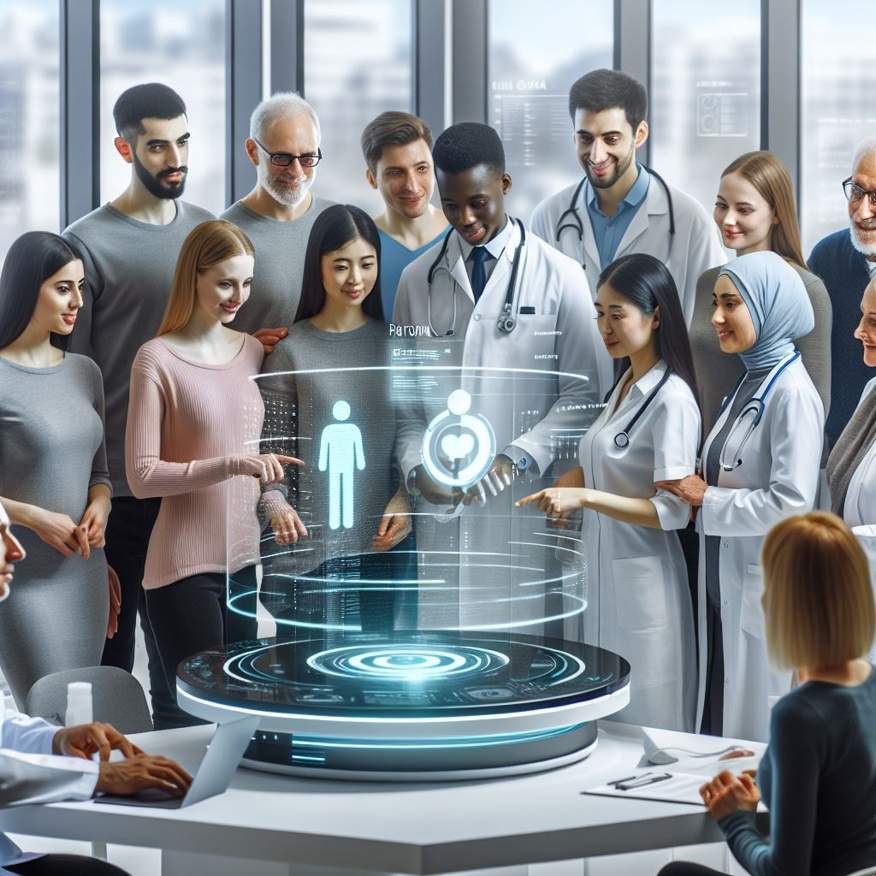
Original article Design for Human Autonomy
AI-Based Clinical Decision Support Systems as a Patient-Power-Up: Designing for Human Autonomy Beyond Patient and Public Involvement
Authors: Cathleen Parsons, Jonathan Adams, and Yassin Engelberts
When8 April 2025
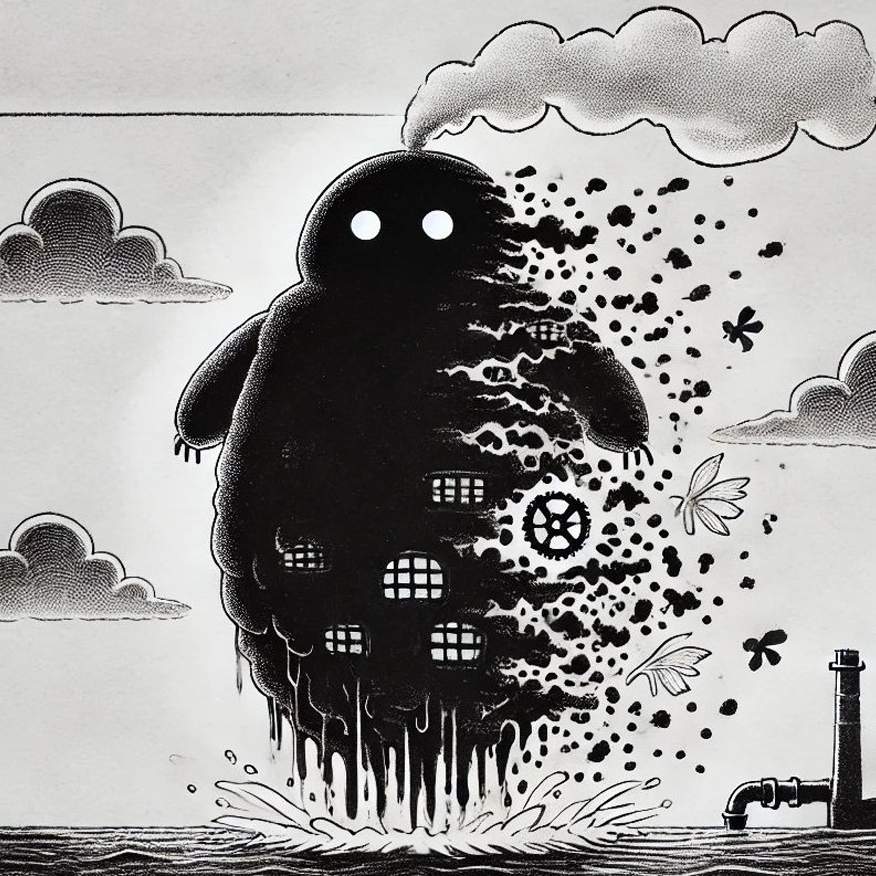
Philosphy of Risk
Risk And Control: A Decolonial Tango?
Technological risk is a daily reality in techno-industrial societies. We are exposed to them while living in our apartments, driving (or cycling) to work, and buying and eating our food. Risks are so embedded and part of our living world that they are almost invisible, becoming real only when something goes wrong and disrupts (temporarily or definitively) the lifeworld of individuals. This situation opens up the urgency of posing an important question: Can we control risks posed by technologies?
When6 February 2025

Philosphy of Risk
Divining Risk
Guest author: Sebastian Levar Spivey
When16 January 2025

4TU-ESDiT conference series
Green dreams are not made of technofixes
Authors: Alessio Gerola (corresponding author - alessio.gerola@wur.nl), Bob Kreiken (b.e.kreiken@tudelft.nl), Jaco Appelman (guest author - j.h.appelman@uu.nl), Paulan Korenhof (paulan.korenhof@wur.nl)
When16 January 2025

Philosphy of Risk
Individual expectations and climate risk
Guest author: Marco Faccenda
When16 January 2025

Philosphy of Risk
The Risk of AI chatbots in mHealth apps
Guest author: Teun Voost
When16 January 2025
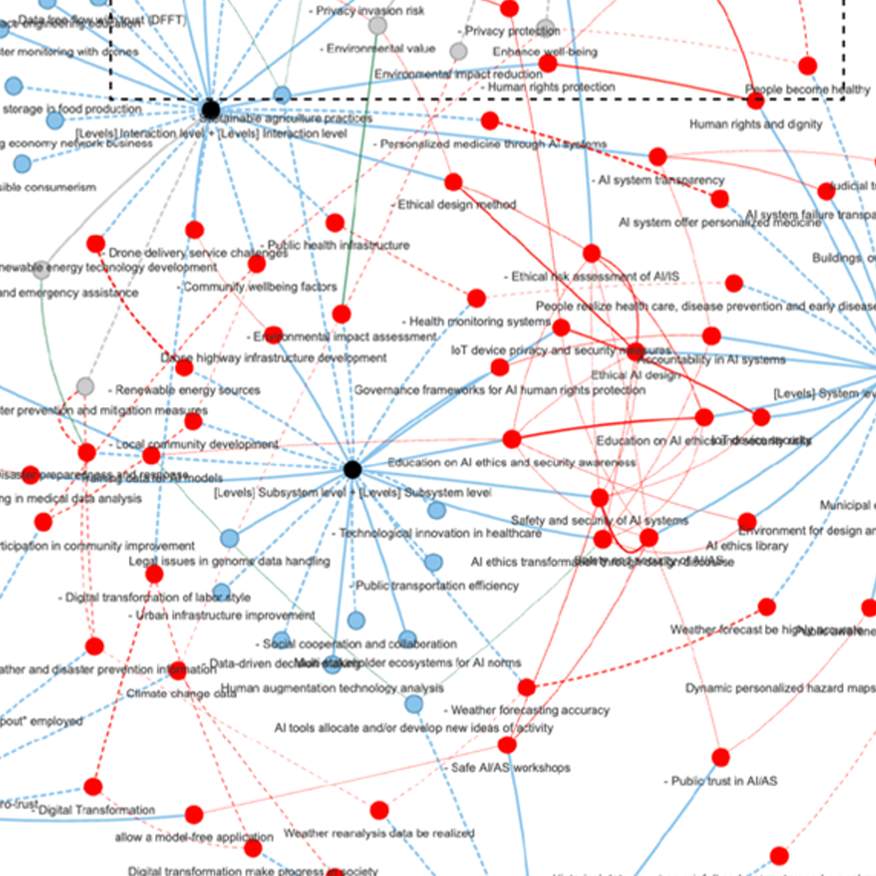
4TU-ESDiT conference series
How Can We Motivate People to Practice Ethical Design?
Have you ever wondered how we can make technology development more ethical? As researchers on artificial intelligence (AI) and design, we've been tackling this challenge through a three-elemental approach by creating workshops that help engineers thi
When28 November 2024
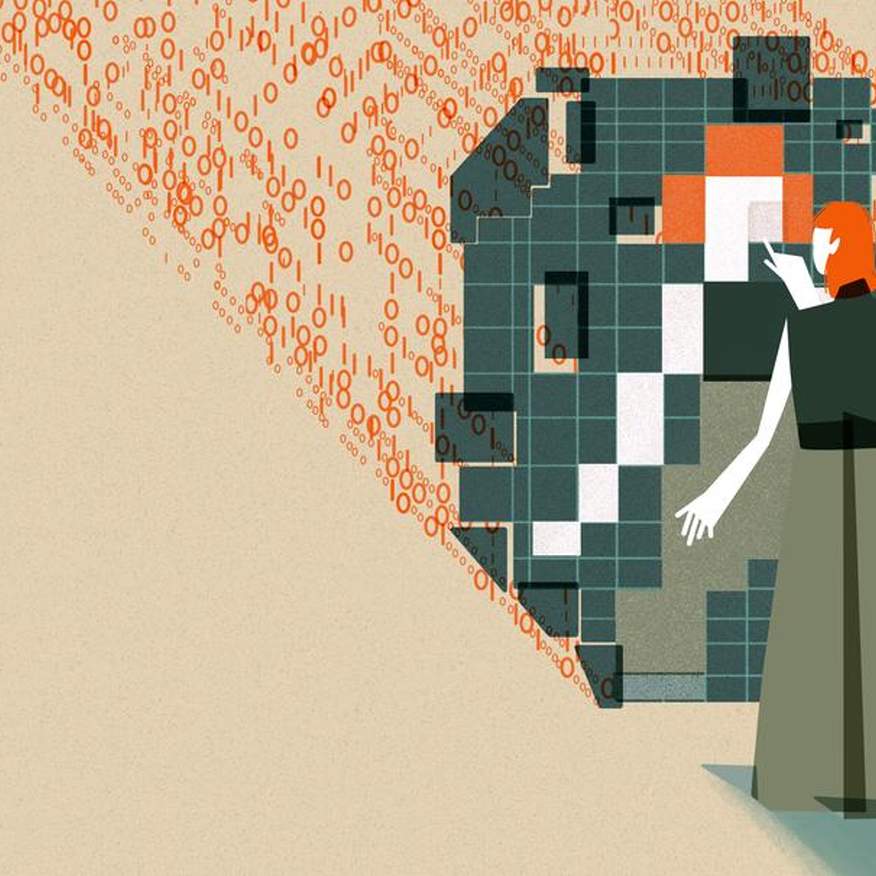
4TU-ESDiT conference series
Calibrating Reliance on Decision Support Systems
We make several decisions every day. Recommender systems or decision-support systems increasingly inform and enrich our decision-making process in various ares, from shopping, to finance and law. In healthcare, clinical decision-support systems (CDSS
When12 November 2024

4TU-ESDiT conference series
Transcendental Technology Ethics
What if we reimagine technology, not just as technological artifacts, but in a way the classical philosophers of technology did? This was the central idea I explored at the 4TU.Ethics / ESDiT conference: Rethinking Ethics – Reimagining Technology. Dr
When12 November 2024

4TU-ESDiT conference series
4TU X ESDiT Reflection Elisa Paiusco
The session on “Climate justice, environmental ethics, and the global ecological crisis” featured leading figures, including keynote speaker Prof. Stephen Gardiner (University of Washington), Prof. Clare Palmer (Texas A&M University), Dr. Bernice Bov
When17 October 2024
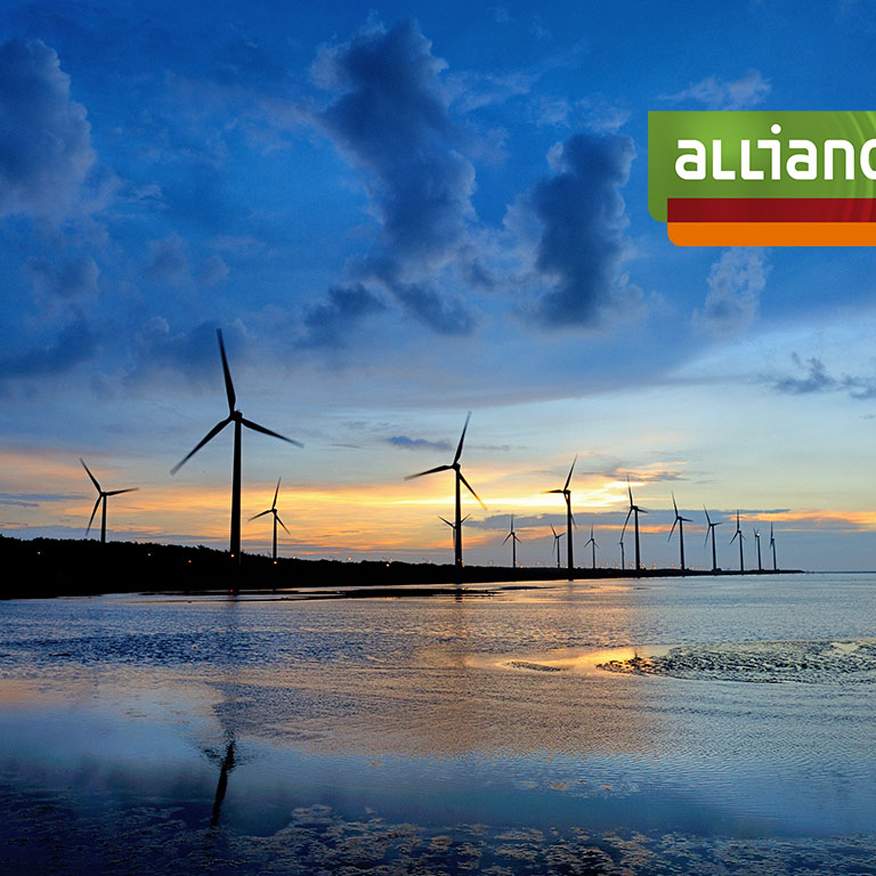
4TU-ESDiT conference series
ESDiT Conference
Is NIMBY’ism justified in times of climate crisis? How much of our thinking is still anthropocentric? Will sustainable technology actually lead to a better preservation of our Earth? These are but a few of the questions that were addressed during the
When17 October 2024

4TU-ESDiT conference series
Two kinds of humans
In this conference we can see two different appreciations of human acting, thinking and being: one perception in the Climate and environmental sessions, and the other perception in the AI and digital technology sessions.
When4 October 2024

4TU-ESDiT conference series
Join Our Roundtable Presenting ‘responsibility as a practice’
In the rapidly evolving landscape of emerging technologies, we've developed a methodology for facilitating and building responsible technology practices. The catch is: how can we refine and implement this method effectively in real-world settings?
When1 October 2024
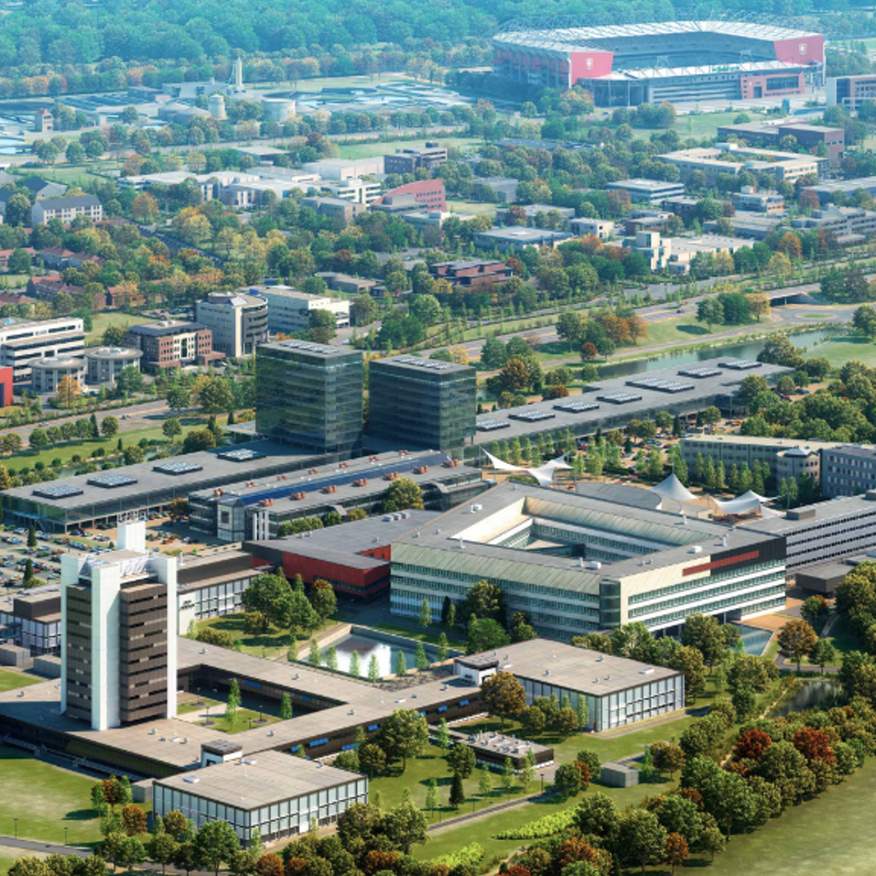
4TU-ESDiT conference series
4TU-ESDiT conference blog series
With the theme of “Rethinking Ethics – Reimagining Technology”, this conference aims to address the question what philosophy and ethics of technology mean today. It accordingly seeks to bring together scholars working on philosophy and ethics of tech
When23 September 2024
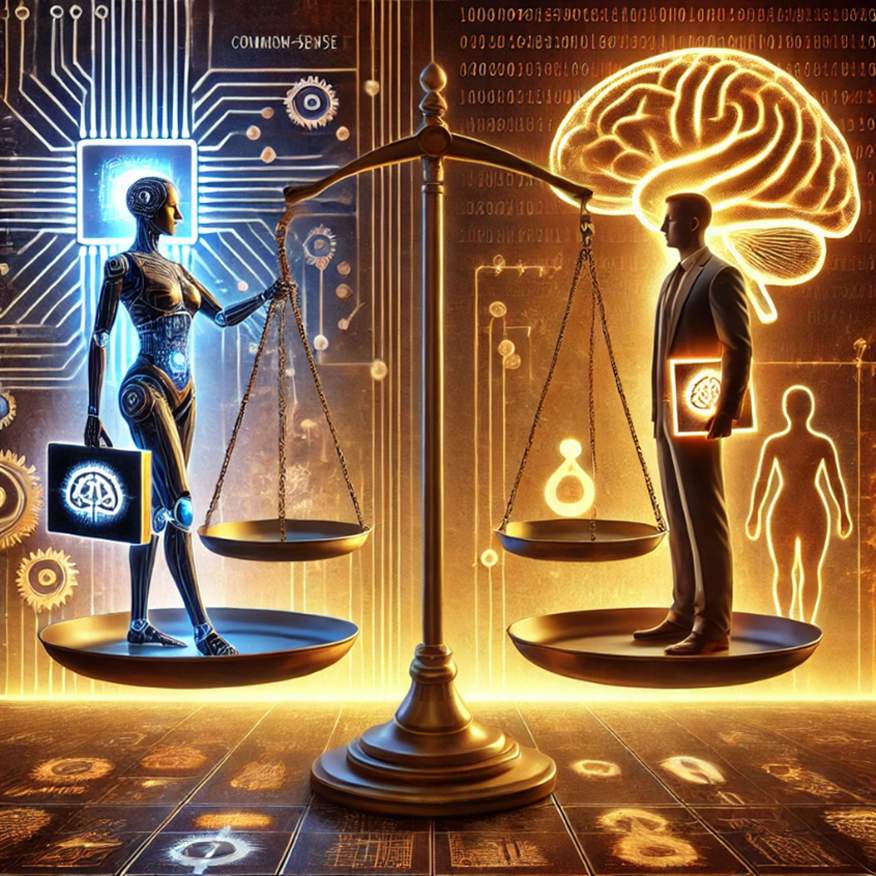
Artificial Intelligence, Metaphor, and Common-Sense Ethics
In this post, I briefly discuss contemporary approaches to Artificial Intelligence (AI), metaphor, and ethics, and how AI can enhance ethical systems and offer innovative solutions to the moral challenges faced by today’s society, although we must al
When4 September 2024

Philosophy of Technology
Chemical Stories From Animation to Design to make visible the invisible
Chemical artifacts are everywhere. Not only can it be argued that chemical compounds are the constitutive blocks of material realities, but also the chemical industry is the transformative node in the economic systems of the world. Where raw materials are transformed, making the technological worlds and operating cuts into reality where the possibilities of matter come to life.
When3 September 2024
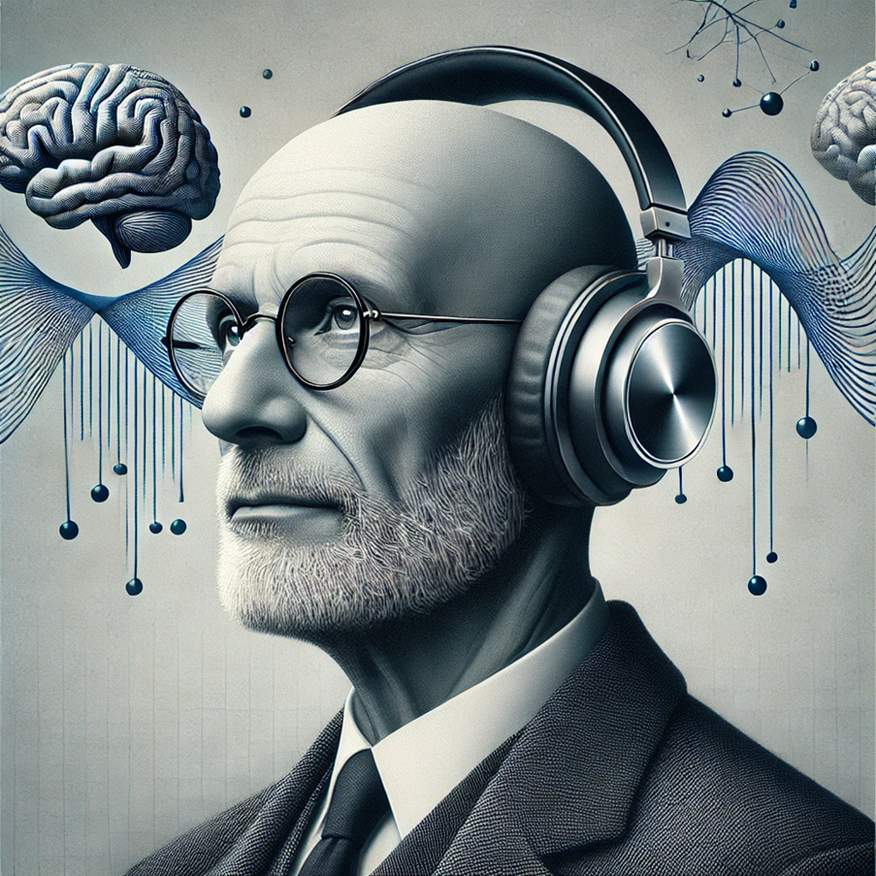
Philosophy of Technology
Deconstructing brainwaves with Foucault
“What if you could boost productivity and focus just by understanding your own brain?” The Neurable Enten headphone is a commercial device that promises “scientific insights into your brain that help optimize your productivity and block out distractions. (…) to allow you to focus on what matters most and win back time in your day.” How does this work? In their advertising video [see selow] , the makers of the headphone state that “when you focus, you brain cells produce electrical signals.” Their headphones measure these signals with Electroencephalography (EEG) and translate it into “data that are practical and easy to understand”. Specifically, their application will tell you when and where you focus best. This allows you to “build better habits, to optimize your day and avoid burnout” because you receive “real-time advice based on your cognitive state”, such as prompting you to take a break or go outside when your focus is low.
When3 September 2024

Original article Other
Buddhism, relative experiences, and technology: Exploring the possibility of a virtuous approach to Social Media
Let’s start by considering this: you're scrolling through your social media feed, probably Instagram and your friends seem to be living their best lives while you feel like you're missing out. If this scenario sounds all too familiar, you're not alone. I call this sensation of missing out relative destruction, and it occurs when different personal realities smash together, creating the sensation that the lives of others are more enriching than your own. Such sensations can disrupt people's well-being and develop an addiction to social media due to the need to see what others are doing by repeatedly comparing your life with theirs.
When23 April 2024
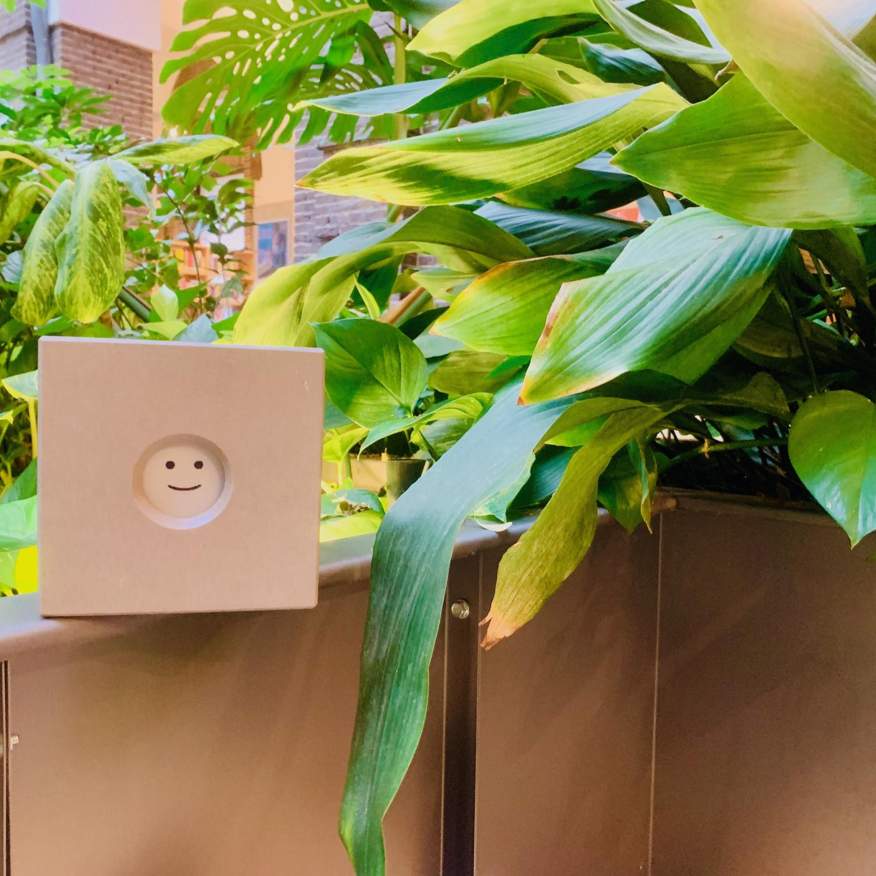
Well-being
4TU.Ethics and Ph.D. well-being: where does it all begin? - Part 2
4TU.Ethics Ph.D. Council (2020) developed a multi-step action plan to create spaces where the convergence of professional and personal discussions would become possible in a free-of-judgment environment. The Ph.D. Council organized several events and reserved spaces for vulnerability and sharing personal experiences, which resulted in mutual support and counteracted a sense of' being on one's own.' Furthermore, the Ph.D. Council provided the Ph.D. community with the opportunity to get together informally outside of the work context. During the events, the Ph.D. Council spotlighted the common challenges of working in the ethics and philosophy of technology and learned from each other. The Ph.D. Council developed an action plan consisting of two projects to support 4TU.Ethics Ph.D. well-being.
When15 April 2024
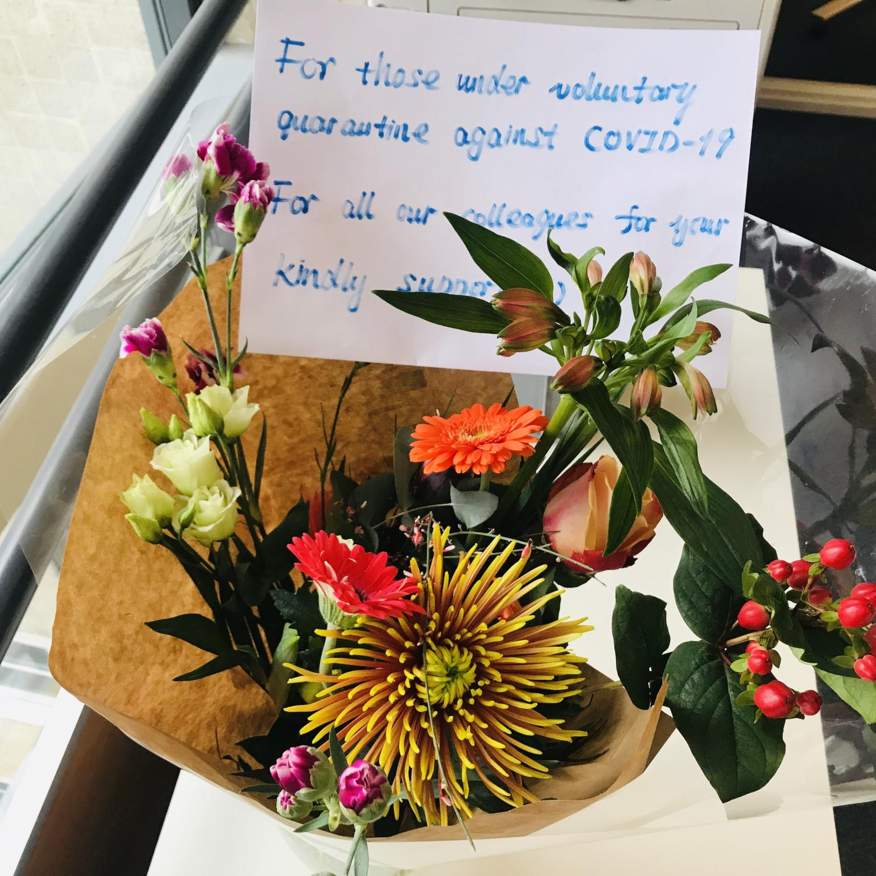
Original article Well-being
4TU.Ethics and PhD well-being: where does it all begin? - Part 1
The well-being of Ph.D. candidates has been an important and much-discussed issue within the 4TU.Ethics community and beyond. Even before the COVID-19 outbreak, many Ph.D. candidates had to deal with chronic stress, performance anxiety, imposter syndrome, and other mental health challenges. 2020 was an exceptionally challenging year for the 4TU.Ethics community as a whole and for its Ph.D. candidates in particular. The COVID-19 crisis has presented our community with various challenges that need to be addressed to ensure our professional well-being and ability to stay productive. For many of our Ph.D. candidates, this pandemic has undoubtedly added to the challenging situation some of them found themselves in under normal conditions. Problems like isolation, loneliness, and mental overload amplified the risk for mental health. At the same time, opportunities to get in touch with people and to contribute to our community seemed challenging to obtain.
When15 April 2024
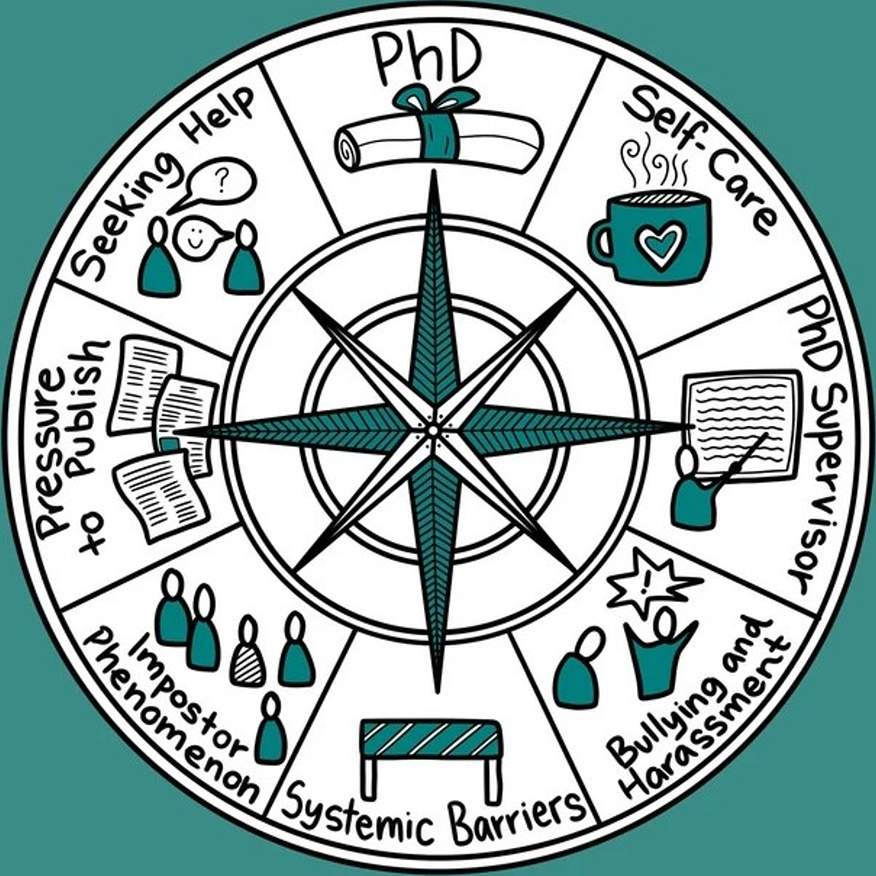
Inspirational Well-being
Book review: Managing your mental health during your PhD
“This book is dedicated to all those who have lost their lives in the pursuit of higher education, all those who have felt alone in their struggles, and anyone who has ever thought they do not belong within the Ivory Tower.”
When15 April 2024
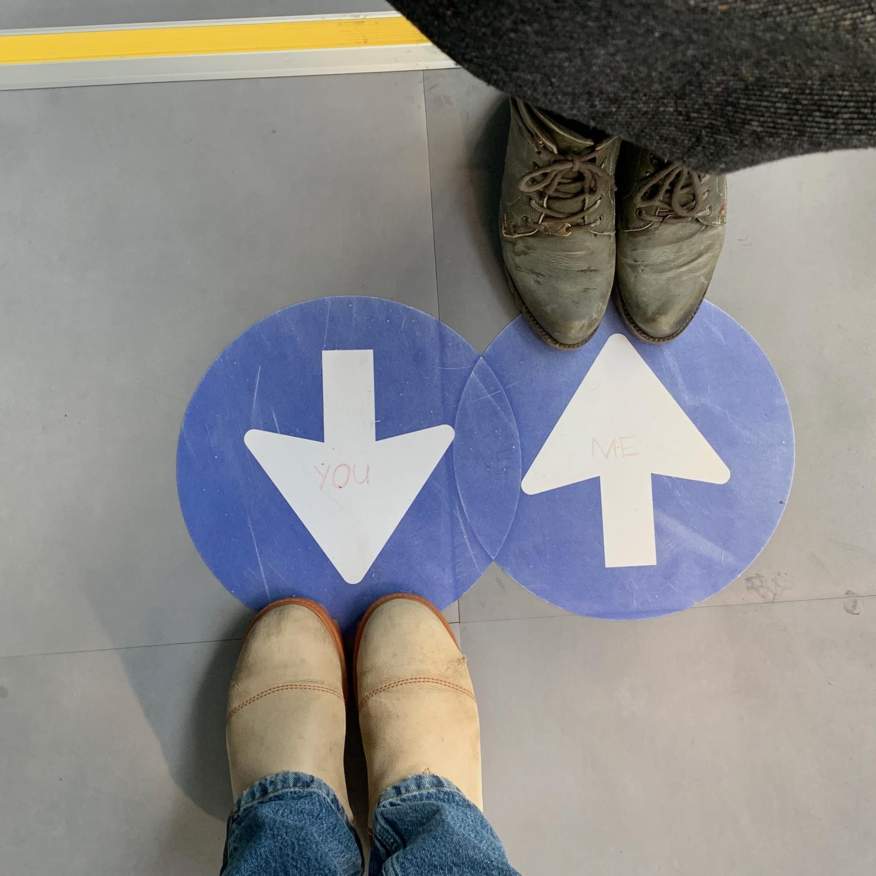
Introduction to series Well-being
Introduction to the Ph.D. Well-Being Blog Series
Embarking on a Ph.D. journey is an exciting endeavor, rich with opportunities for personal and professional growth. However, it can also present significant challenges and moments of isolation. The modern academic landscape places immense pressure on Ph.D. candidates, who strive for excellence while juggling multiple roles—from researcher and teacher to manager and colleague. Navigating these diverse responsibilities and uncertainties about future career prospects can prove daunting, compounded by individual backgrounds, ambitions, and personal challenges.
When15 April 2024

Decolonial Options and Possibilities in Design and Engineering
Decolonial options and possibilities in Design and Engineering: A message from the guest editors
Creating a space in the 4TU.Ethics community for reflecting on the colonial and decolonial responsibility of engineering and design grounds in a basic predicament: engineering professionals have been a central agent in creating the structural unsustainability of the contemporary world (Escobar, 2018). The basis of this predicament not only relies on the fact that through engineering projects, the “West won” (Eichhorn, 2020). This predicament is also grounded upon the internal normativity of engineering (Zwart, 2020), which, for decolonial thinkers, is foundational to coloniality design (Escobar, 2018). Like an alchemist, the engineer observes fragments, isolates, appropriates, and destroys ways of life regarded as inferior into elements for producing what is most valuable under the imperative of development (von Werlhof, 2013). “Coloniality” is the design that rules out, makes invisible, or just sacrifices “ways of being” outside the ontological coordinates defined by the epistemological powerful as necessary, imperative, and universal (Quijano, 1992). Not only do the epistemological powerful, often bolstered by Western academic titles, reduce the non-western knowledge system as inferior and take over the prerogative to design the majority world (Browne and Geisse, 1971), but they also, in the name of “sacrifices” for all humanity, expel or deny indigenous populations and locals of their rights to self-determination (Smith, 2021).
When14 March 2024
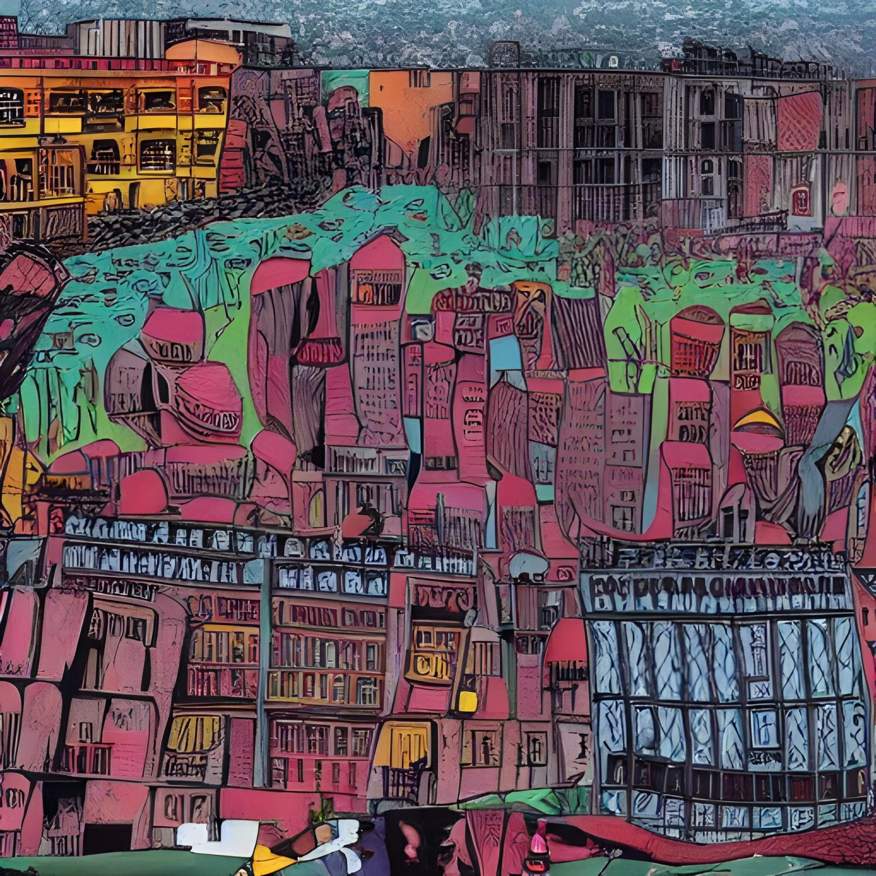
Introduction to series Decolonial Options and Possibilities in Design and Engineering
Introduction to the blog series: Decolonial Options and Possibilities in Design and Engineering
Creating a space in the 4TU.Ethics community for reflecting on the colonial and decolonial responsibility of engineering and design grounds in a basic predicament: engineering professionals have been a central agent in creating the structural unsustainability of the contemporary world (Escobar, 2018). The basis of this predicament not only relies on the fact that through engineering projects, the “West won” (Eichhorn, 2020). This predicament is also grounded upon the internal normativity of engineering (Zwart, 2020), which, for decolonial thinkers, is foundational to coloniality design (Escobar, 2018). This blog series is, therefore, a space for discussing decolonial options in design and engineering. That means opening the possibility to transform engineering practice to support concrete struggles for self-determination and enabling plural ways of being beyond what the epistemologically powerful have defined as necessary, imperative, and universal (Walsh and Mignolo, 2018).
When14 March 2024

Design for Justice
Balancing Values and Desires
This blog highlights the concerns that female-shaped sex robots may perpetuate harmful stereotypes and promote non-empathetic and sexually violent interactions with women. We argue for a value-sensitive design approach, emphasizing the importance of diverse stakeholder perspectives and enabling technology that respects women.
When14 December 2023
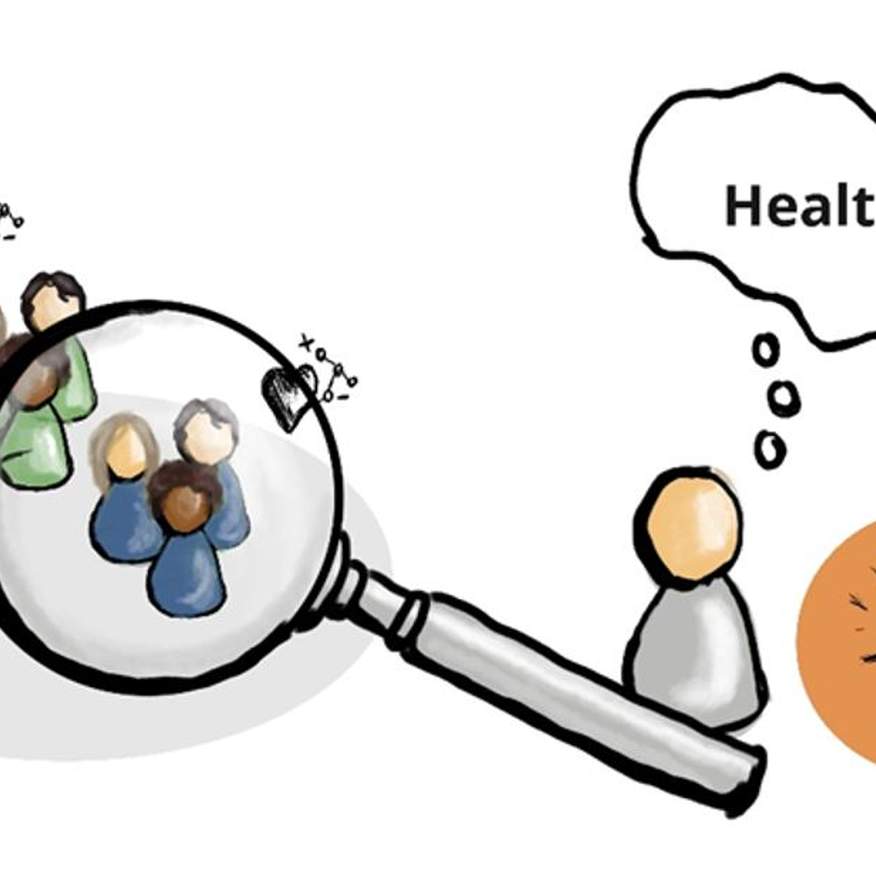
Design for Justice
Designing for Justice: Breaking free from pre-set value constraints
Nadia sits on the couch for a moment after putting her baby in the crib for a nap. She takes her phone and opens the Baby+ app (Philips, 2020). The app shows her relevant articles aligned with her baby’s young age. An article about introducing solid food to your baby piqued her interest. She reads that her baby should be able to eat solid food by now. Her baby gagged two days ago when she tried to introduce some solid food making the baby unwilling to give another bite. Nadia starts to feel highly insecure, as a relaxed moment suddenly turns into a stressful one. This scenario illustrates how the app's evaluation of what the baby needs is in tension with Nadia’s own values of securing her baby’s well-being (e.g. based on her immediate perceptions of her baby’s responses to eating solid food).
When14 December 2023

Design for Justice
Giving up Privacy for Justice?
Location data is essential for solving environmental and humanitarian challenges. Location data differs from other types of data because of the focus on location reference. For example points (coordinates) of a disease occurrence or areas (boundaries) with flooding. Because of the interconnected nature between humanitarian and environmental concerns, location data is more than just a dot on a map; it is also a proxy variable for socio-demographic, political, and environmental factors. Therefore, location data raises unique challenges and implications for privacy, for example, ease of tracking movements of people and making inferences about “social, economic or political behaviour” (1). Furthermore, the increased use of automated decision-making systems using location data challenges fairness and justice through a lack of equitable distribution of resources because of biases within these systems.
When14 December 2023
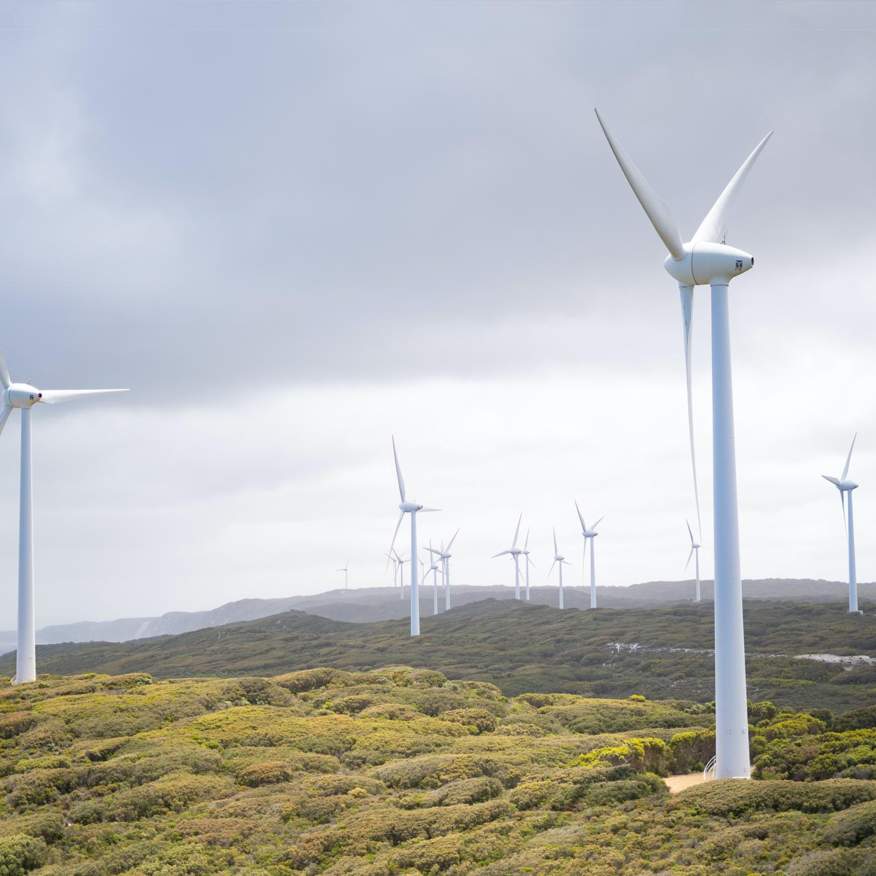
Introduction to series Design for Justice
Introduction to the Design for Justice 2023 blog series
A warm welcome to the blog topic of Design for Justice!
When14 December 2023

Design for Justice
Who cares!?
Dependency is an inherent feature of human existence. At various stages in our lives, we will inevitably have needs and desires that we cannot meet on our own. As infants, we depend on our parents; as patients, we depend on our doctors; as students, we depend on our teachers. It is within these asymmetrical relations of dependency —where we find ourselves vulnerable relative to whom we are related to— that care theorists advocate for care as a value and practice that “expresses the ethically significant ways in which we matter to each other” (Bowden, 2002, p. 10).
When14 December 2023
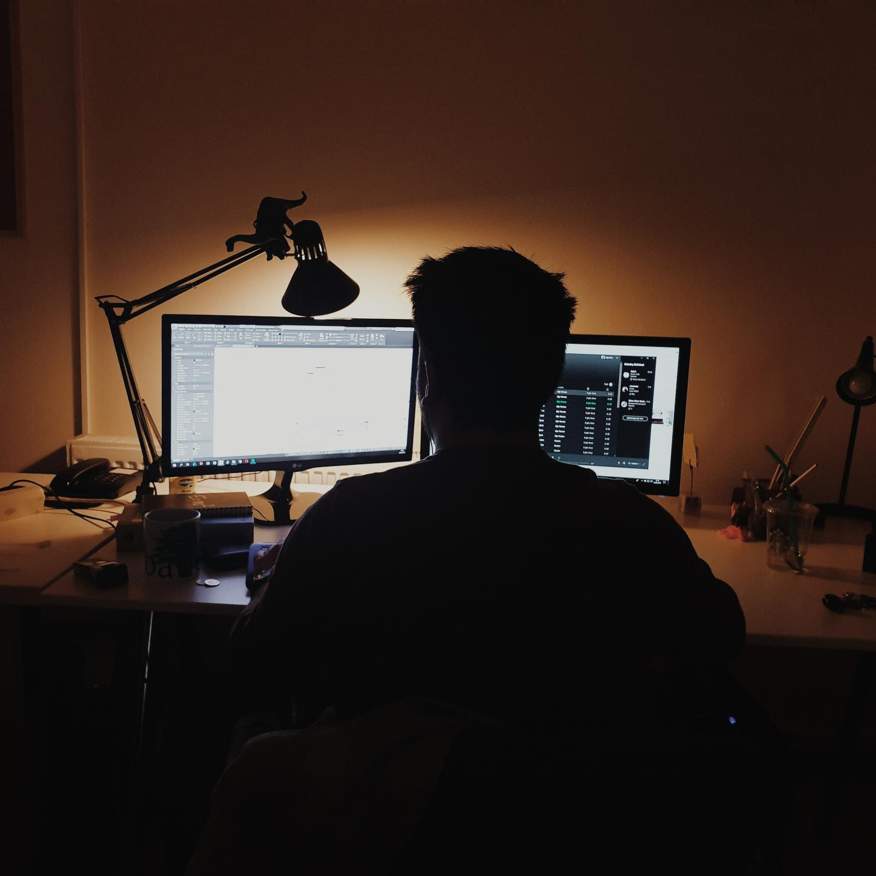
Design for Justice
From design intentions to critical practice
Value Sensitive Design (VSD) calls for designers to be proactive toward embedding values into technologies (Davis & Nathan, 2015). To create designs that are more ethical and more purposive about how they support social justice, VSD emphasises how intended values are to be specified at the earliest point of project planning. Correspondingly, VSD advocates for a design process that flows “top-down” from a set of intended ethical impacts to an elaboration of the technical specifications that might be reasonably expected to achieve these impacts (van de Poel, 2021, p.305). We suggest that while such a top-down process is ideal, it may encounter considerable challenges when applied to real-world design scenarios. Not least among the reasons for this is that technologies often will not have a single, or altogether clear, starting point - rather emerging from iterations and adaptations of already existing technologies. In such imperfect situations, when technologies are already in use, proponents of VSD principles must - on the fly - adopt a proactive repertoire for a reactive intervention.
When13 December 2023
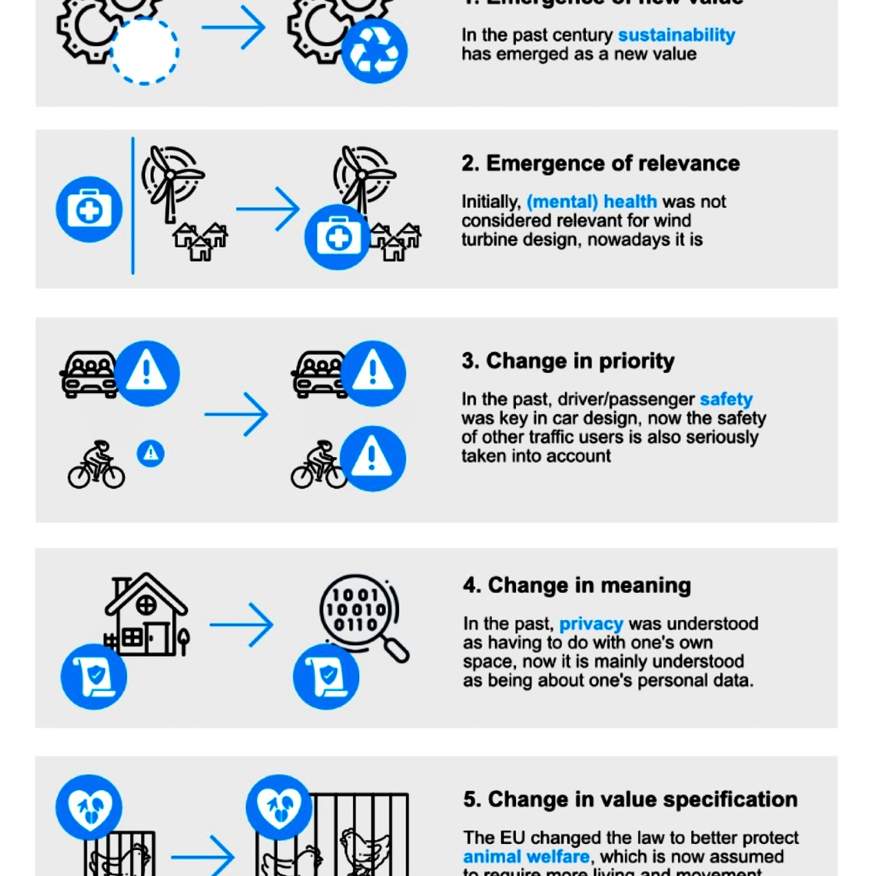
Perspective Ethics Beyond Academia
How to incorporate changing values in new technology?
The world is ever-changing, and so are human values. Social media, for example, illustrates why we should take value change seriously. Initially, platforms like Twitter and Facebook were seen as ways to facilitate the value of freedom of speech. Nowadays, due to the rise of fake news and political polarization on these platforms, ‘truth’ and ‘nonmaleficence’ emerged as new values guiding decisions about what messages to allow on these platforms. How can designers of new technology proactively include value change in their design? A team of TU Delft researchers from the 4TU.Ethics Center has written a white paper and a commentary publication at IEEE with practical examples to help designers tackle this issue. This output is based on the outcomes of the ERC-funded research project ‘Design for Value Change’.
When19 November 2023

Interview Ethics Beyond Academia
Interview with Matthew Dennis
Matthew Dennis is an Assistant Professor in Ethics of Technology in the Philosophy and Ethics Group at TU Eindhoven. He holds a PhD in philosophy from the universities of Warwick and Monash, and has worked as a postdoctoral researcher at TU Delft and TU Eindhoven. In addition to his academic research, he has also worked as a digital ethics consultant for the start-up, Ethical Intelligence.
When3 September 2023

Interview 4TU.Ethics Alumni Network
Interview with the 4TU.Ethics Alumni – Melis Bas
Welcome to the second blogpost of the 4TU.Ethics Alumni Network series!
When27 August 2023
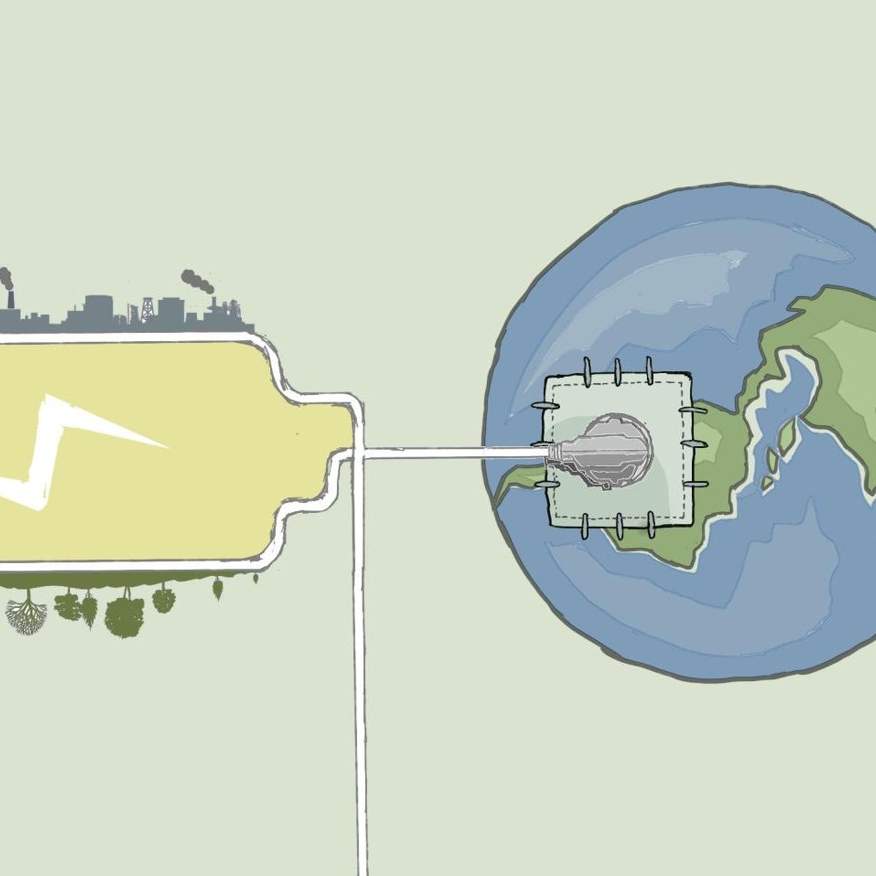
Responsible Innovation
Battery Hazards
Although batteries play a key role in energy transition, they can also cause hazards. For example, if you overcharge batteries, it may not only shorten their lifespan, but also pose health and safety risks. Batteries can emit toxic gasses and even explode when overcharged. Therefore, researchers have tried to develop technologies such as circuit protection to prevent batteries from being overcharged.
When1 June 2023

Responsible Innovation
In pursuit of the ELSA pathway
In 2021, the Dutch Research Agenda (NWA) launched a programme on human-centred AI for an inclusive society. Research in this programme focuses on the development and application of trustworthy, human-centred AI. To conduct this research, the NWA supports various ELSA (Ethical, Legal, Societal Aspects) Labs.
When31 May 2023

Responsible Innovation
What is the limit for future technologies, the sky or the earth?
Dear technology enthusiasts, we have a problem! We need to urgently talk about the way we deal with technology. While we have been enjoying the new possibilities and the comfort that is enabled by modern technologies, we haven’t been paying enough attention to the problems that accompany them. These problems are among the biggest social and environmental challenges ever created by the human species.
When30 May 2023

Responsible Innovation
Emancipatory innovations and rebelling technologies
The potential of innovations to creatively destruct, invites an imaginary of technologies for alternatives futures that is richer than the wish to bring modern societies to a higher tech level. This blogpost reflects on the purpose of innovating and developing technologies, and calls for an exploration of innovation and technological development from a critical perspective without endorsing a technophobic attitude.
When29 May 2023

Responsible Innovation
Hyping up scientific and technological discoveries
Making surgery smarter through ‘intelligent knives’, creating a better understanding of organs through organ-on-a-chip (which will hopefully lead to the creation of mechanical organs) and promising a technology like Theranos all hype up their positive impact in order to get media attention and (additional) funding for their projects. The way we talk about scientific and technological discoveries often turns to nothing more than “hype” – basically exaggerating the promises of test results, and downplaying negative aspects or even mayor risks. In other words: people are deceived about the realistic impacts (and actual results) of scientific breakthroughs or technological discoveries.
When29 May 2023

Responsible Innovation
Responsible Innovation as Organisation of the Social
Stakeholder involvement is a crucial aspect of responsible innovation. Ideally, by including different perspectives, a more comprehensive picture of the issue at hand is achieved. The question arises, however, as to what is considered as “the” issue, which has corresponding effects on who is included in the conversation.
When29 May 2023

Responsible Innovation
The Innovation for the 21st Century is Exnovation
Pandemic, climate crisis, food shortages. This is, unfortunately, just a short list of the serious issues of our current time. We are facing several problems, which are part of a complex structure. We find ourselves in a world with intertwined, multiple crises and wicked problems, which are hardly possible to understand or easy to solve.
When29 May 2023
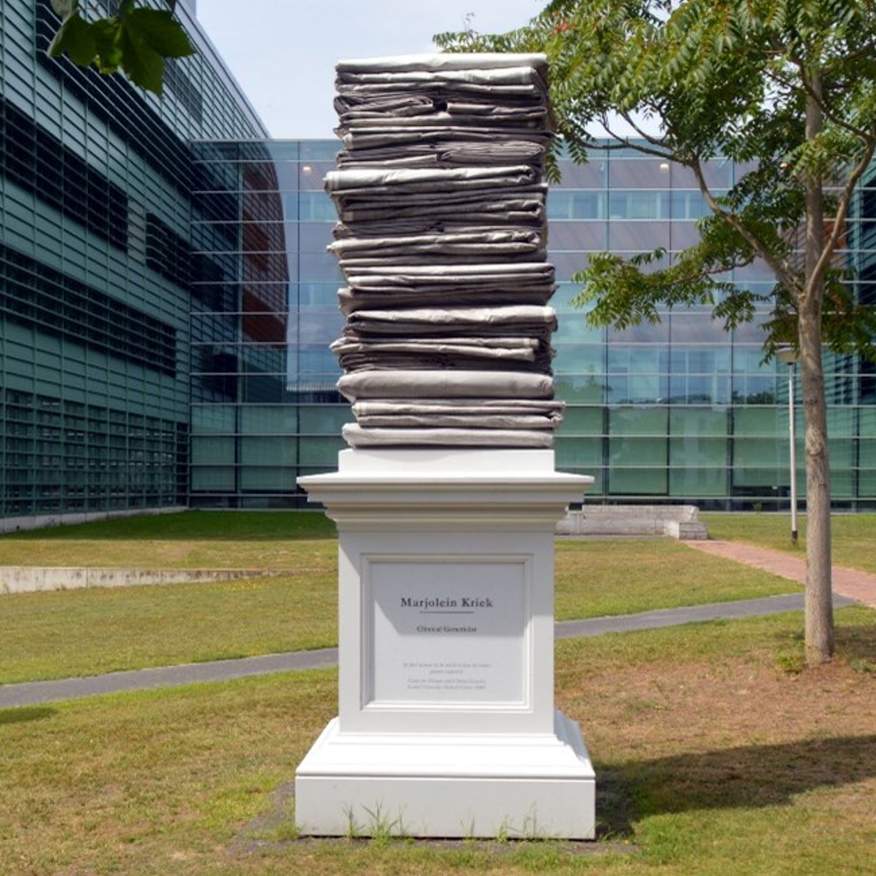
Perspective Responsible Innovation
Get well, do well
Innovations are often seen as objective solutions for our societal problems, with big promises such as a better quality of life and overall well-being. Yet, especially in healthcare where digital technologies have recently taken over a lot of practices, questions were raised such as ‘how do these technologies impact people’s lived experiences?’, ‘can these technologies exclude certain groups from receiving the same healthcare as others?’ and ‘can we develop technologies which are better aligned with the needs and values of the users?’. To illustrate the relevancy of these questions, I will discuss the impact of society on the development of a medical-technical innovation and vice versa.
When14 May 2023

Original article Other
Verdedig de digitaliserende democratie
In februari 2023 publiceerde de Europese Unie het intitiatief “Verdediging van de democratie”. Als een vervolgstap in dit proces, vroeg de Europese Commissie om reacties op dit initiatief. Natuurlijk vinden wij het verdedigen van de democratie in de Europese Unie een belangrijke taak, en steunen wij dit initiatief als onderdeel hiervan, maar het viel ons op dat de dreiging van digitalisering op de democratie niet concreet is uitgewerkt in dit pakket. Daarom hebben wij onze visie hierop verwoord in een reactie, welke we hier nogmaals publiceren. De reactieperiode voor het pakket is nu gesloten. Alle (openbare) reacties zijn hier te vinden.
When1 May 2023

Philosophy of Technology
A quantum inspired approach to RRI
Quantum technologies are best understood as a family of technologies based on quantum mechanics. In short, quantum mechanics is a theory in physics describing the behaviour of particles at the scale of atoms and subatomic particles: a task that it performs stunningly well for over the last 100 years. Besides advancing our understanding of the fabric of reality, quantum mechanics can also be applied in technology development.
When30 April 2023
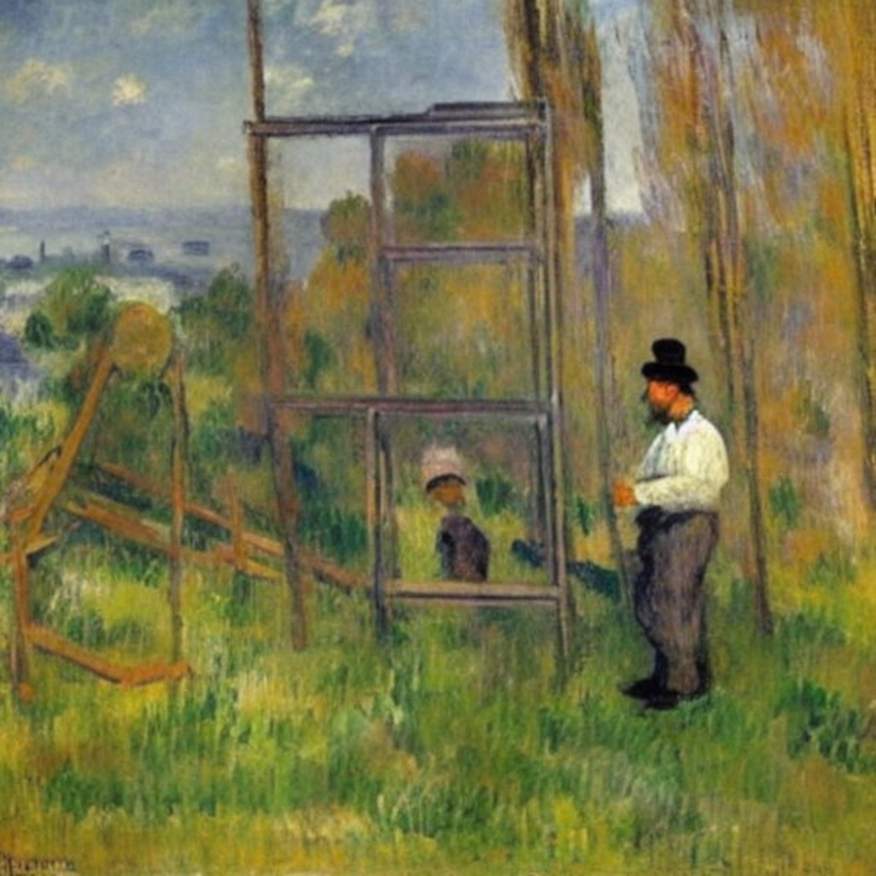
Introduction to series Responsible Innovation
Introduction to the ‘Responsible Innovation 2023’ Series
Welcome to the blog series about Responsible Research and Innovation! All blogs in this series were written by participants of the 4TU.Ethics PhD course ‘Philosophy of Responsible Innovation’, organized by prof. dr. Vincent Blok and prof. dr. Ibo van de Poel.
When30 April 2023

Introduction to series Ethics Beyond Academia
Ethical Theory and Moral Practice
Historically, ethical theory and moral practice have found many different forms of expression. The ancient Greeks, for instance, relied on the moral judgments and prophecies of the priestesses of the cult of Pythia, also known as the Oracle of Delphi. Greek philosopher Aristotle consulted Alexander the Great about morality, religion, logic, and art. In ancient India and China, ethical theories underpinned religions like Confucianism, Hinduism, and Buddhism and influenced the development of modern societies. Today, we see the rising relevance of ethical reflection in the context of new and emerging technologies. Various decision-makers rely on experts who derive their ethical expertise from philosophical theorizing and empirically informed research.
When6 March 2023

Interview Ethics Beyond Academia
Interview with Olivia Gambelin, CEO of Ethical Intelligence
Ethical Intelligence is an ethics consultancy service that specializes in operationalizing AI ethics across product development and data life cycles.
When6 March 2023

Interview 4TU.Ethics Alumni Network
Interview with the 4TU.Ethics Alumni – Shannon Spruit
Welcome to the first blogpost of the 4TU.Ethics Alumni Network series!
When8 January 2023
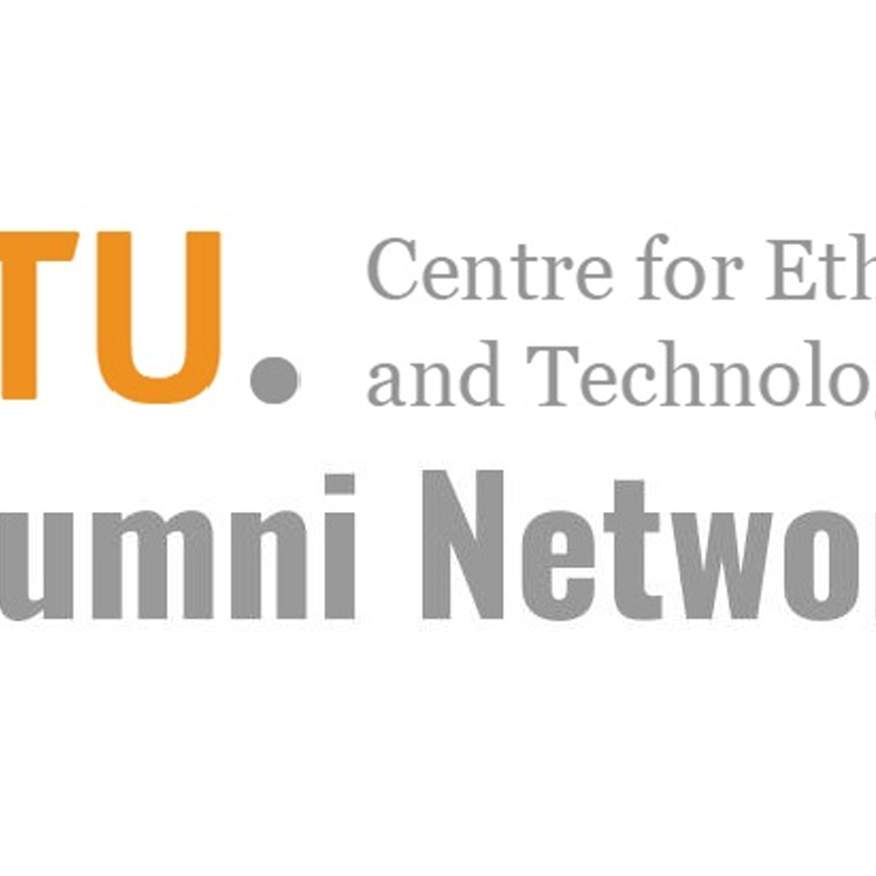
Introduction to series 4TU.Ethics Alumni Network
Introduction to the 4TU.Ethics Alumni Network Series
Welcome to the first introductory blogpost of the 4TU.Ethics Alumni Network!
When6 January 2023
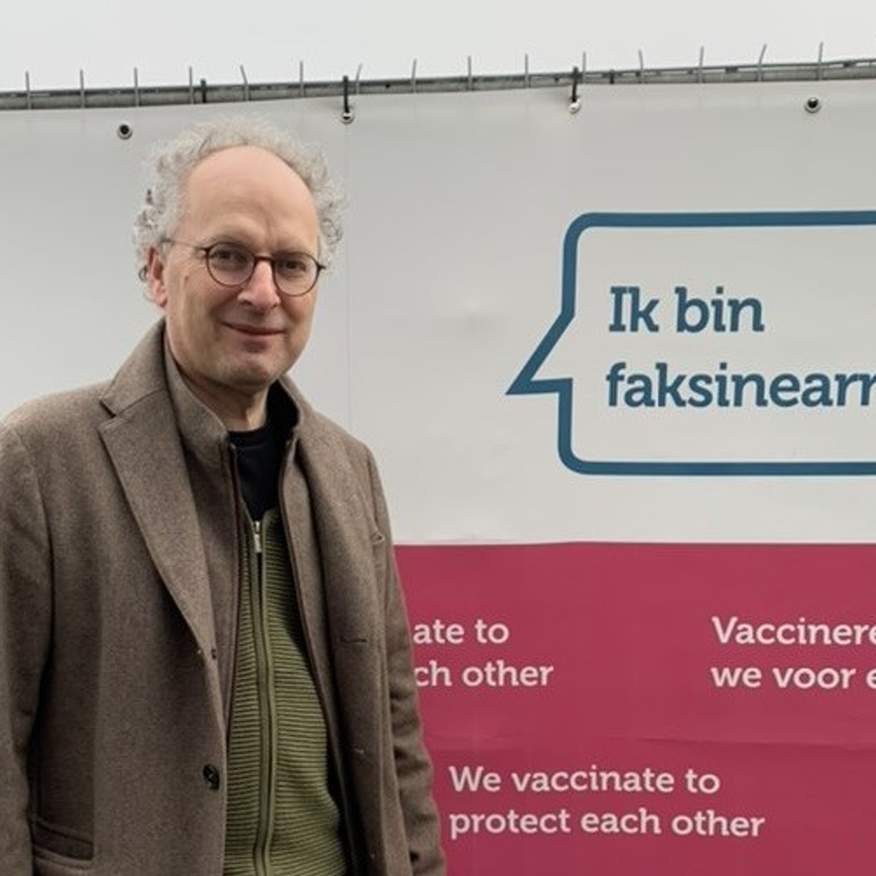
Interview Other
Interview with the Director of the 4TU.Ethics Center Prof. Marcel Verweij
The interview took place on September 23, 2022.
When28 October 2022
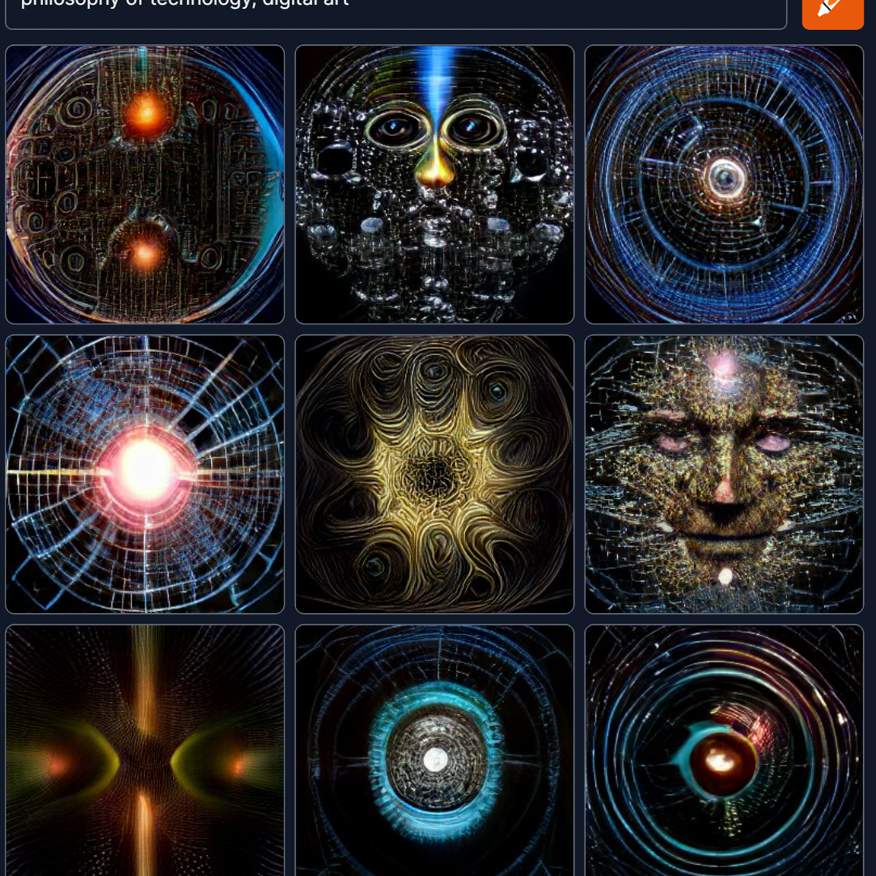
Introduction to series Philosophy of Technology
Introduction to the “Philosophies of Technology 2022” Series
This series of blog posts is the result of the 4TU.Ethics’ PhD course “Philosophies of Technology 2022”. The course aims to introduce students to classic themes, concepts, and authors in the ethics and philosophy of technology.
When29 September 2022
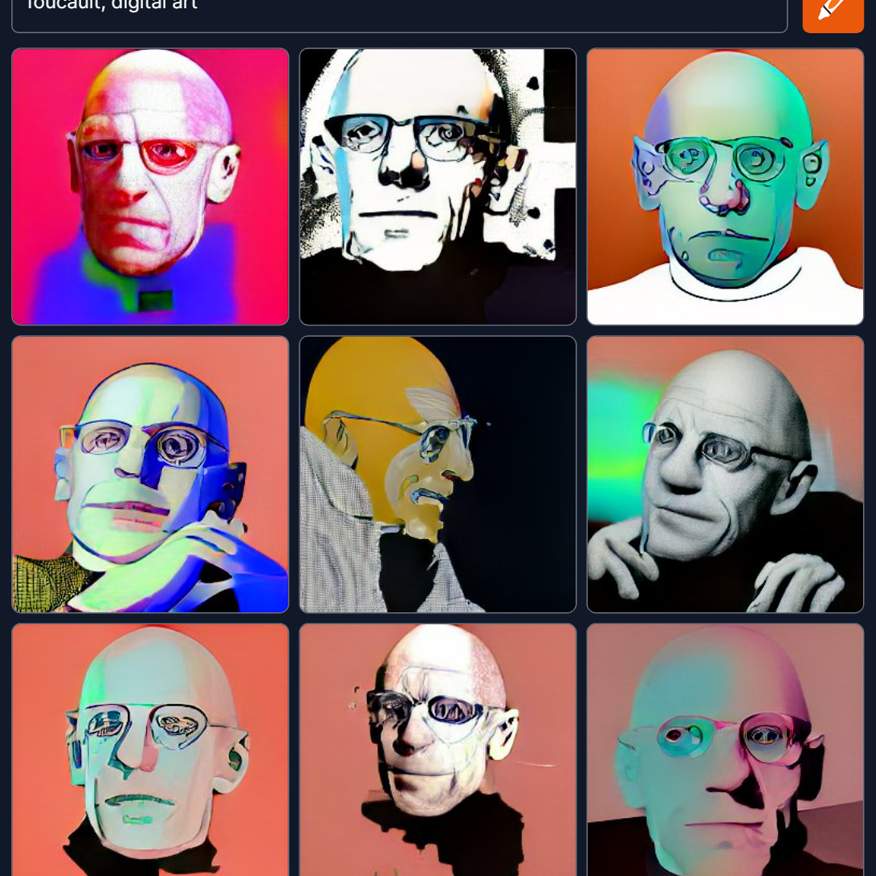
Philosophy of Technology
The power of the human exposome
Health is a very important value. The scientific discipline of the human exposome aims to map and measure our environment to study its impact on health, aiming to predict future diseases and prevent their onset. The work of historian-philosopher Michel Foucault shows that science is not solely an objective and rational practice, but highly normative and both shaped by and shaping society and its inhabitants. How can the work of Foucault inform the new scientific discipline of the human exposome?
When29 September 2022
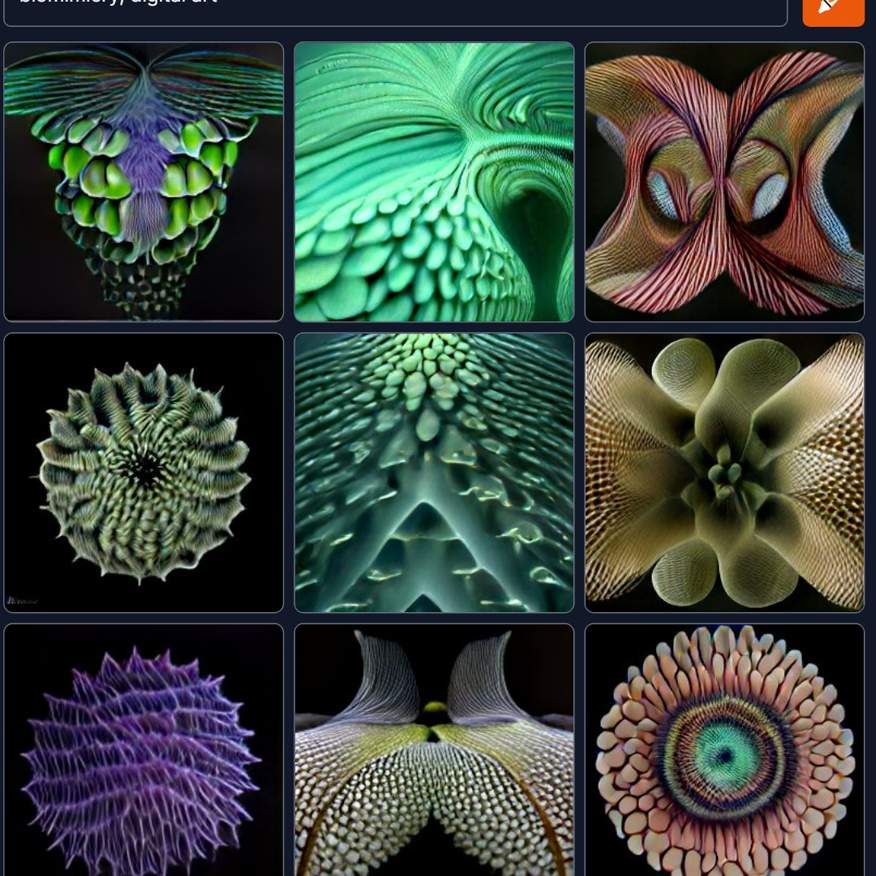
Philosophy of Technology
Biomimicry: reinventing nature?
Leonardo Da Vinci’s flying machines. Self-cleaning paint. A Japanese bullet train. Velcro strap. What do these things have in common? Hard to say from mere appearance. But if one looks closely enough (close enough to look at the micro-scale in some cases), they are all technologies inspired by nature. Birds’ wings, lotus leaves, the kingfisher’s aerodynamic shape, burdock’s seeds have plenty to teach us about how nature flies, keeps itself clean, reduces drag, attaches and detaches. Learning nature’s lesson to apply them to our technological designs is called biomimicry. It is the conscious emulation of nature’s genius to solve the ecological and technical challenges of today. Innovation inspired by nature, as the subtitle of Janine Benyus’ popular book Biomimicry (2002) declares.
When28 September 2022
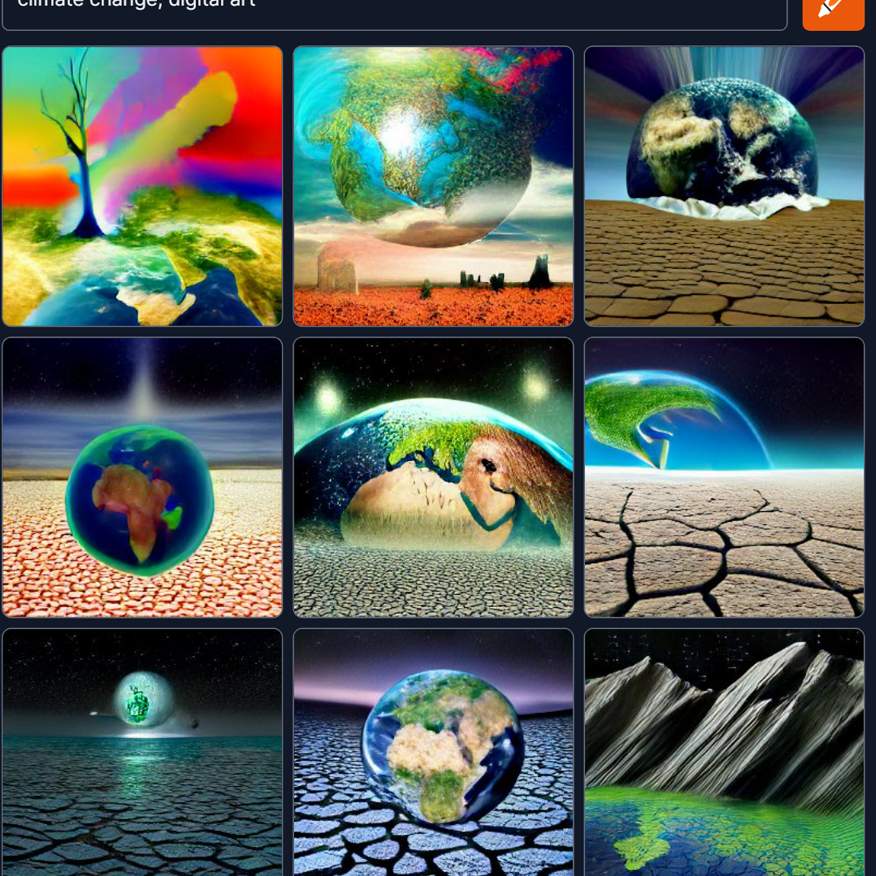
Philosophy of Technology
Caught between climate denialism and doomism, is there a way out?
Should I stop watering the garden in dry summers? Can I take the car to go to the supermarket when it rains? But also, much more pressing: should we consider relocating to avoid flood risk? Should we save up for buying a rainwater harvesting tank or invest in growing more drought resilience crops? Do my actions actually make a difference or are we just doomed to go extinct anyway and should we not bother anymore?
When28 September 2022
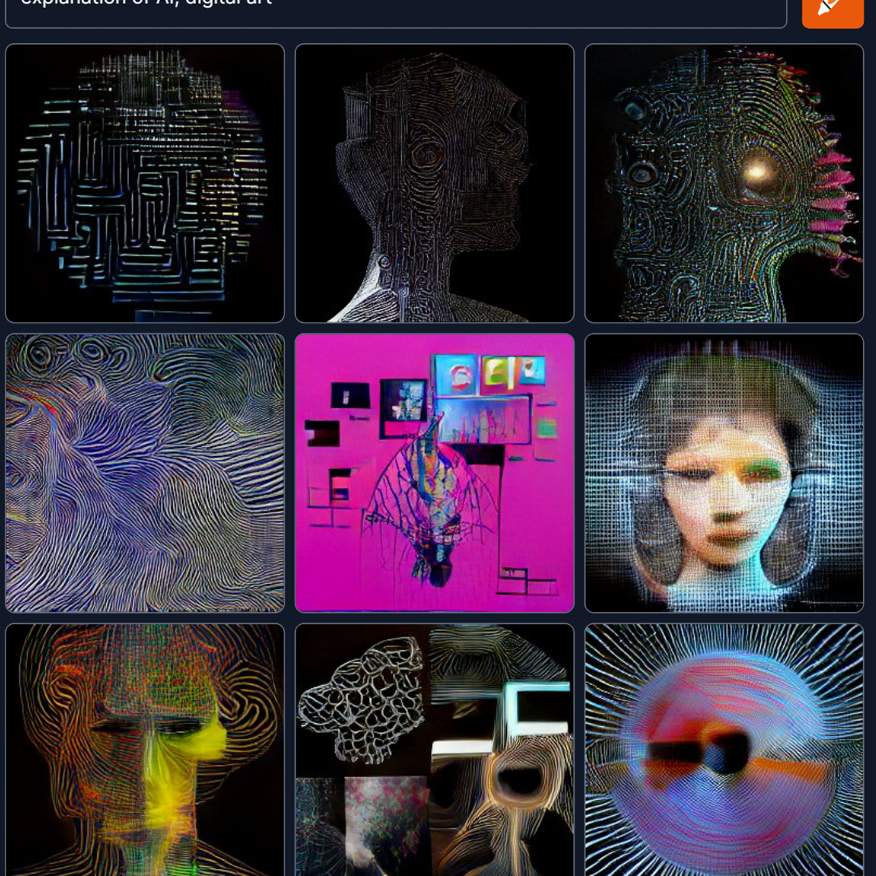
Philosophy of Technology
Responsible AI development, are explanations enough?
Responsible artificial intelligence (AI) is one of the recent hot-topics in AI. AI seems here to stay and (arguably) has the potential to greatly improve our lives. But these promises come together with risks: what if AI makes decisions that negatively impact us? To avoid this, we should develop responsible AI: algorithms we can trust, that respect human rights and societal values, and that we, humans, have some kind of guidance over (RAI | RAII Home, n.d.).
When28 September 2022
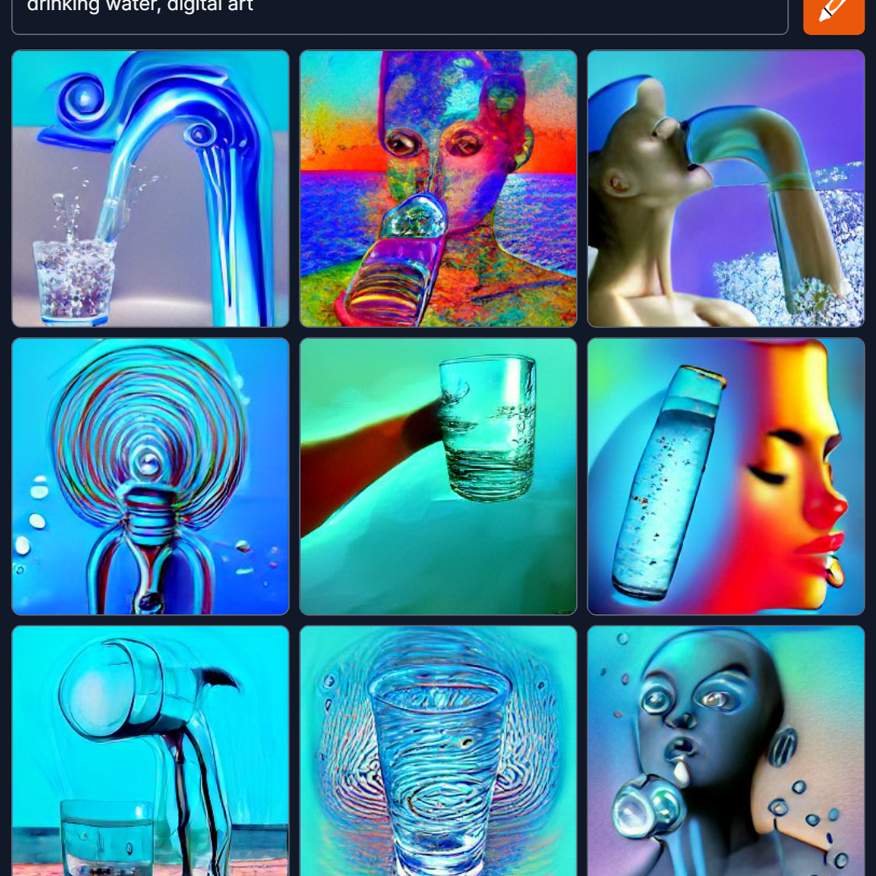
Philosophy of Technology
Turning pee into drinking water
The availability of potable water from traditional freshwater sources, such as ground and surface water, is declining radically. As a result, research has expanded its focus to new potable water sources. One of them is wastewater – meaning water that has been used already by, among others, households. This used water stems from the bathroom, washing machines and household sinks. The mere fact that the treated drinking water is associated with household wastewater is highly controversial and often leads to a highly charged emotional reaction – disgust. This reaction is often referred to as the main barrier for the slow technology implementation. Often, experts claim that the emotional reaction of disgust is irrational and that the public is merely “squeamish’. They add that the workings of wastewater reuse technologies have been proven for many years. Recycled drinking water can even exceed the drinking water quality of traditional water resources.
When28 September 2022
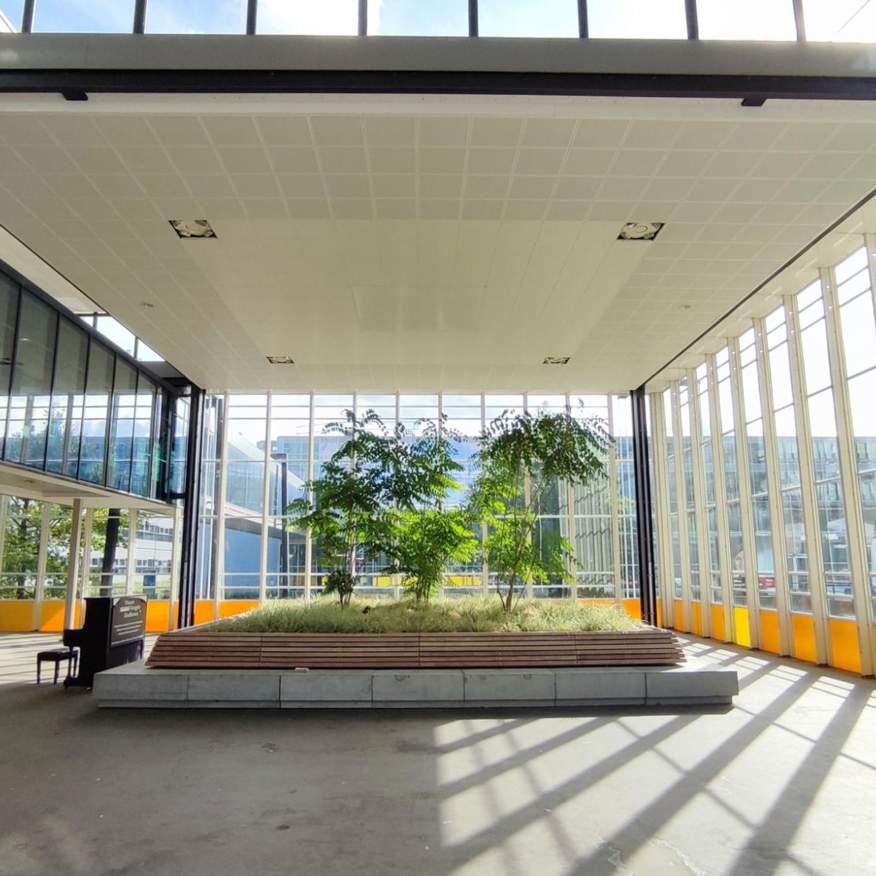
Introduction to series Photography series
Introduction to the Photography Series
In this series we present the photographs that were shoot during a PhD workshop by Anthonie Meijers.
When22 June 2022

Photography series
Carbon reciprocity
Carbon is abundant. It can be found in all forms of life. It can be found in rocks and shells. It can be found in non-organic matters such as pencil graphite and coal used in power plants. Carbon is essential for humanity; fossil fuels, which are organic tissues from ancient plants and animals, in a way, foster the birth of democracies.
When16 June 2022
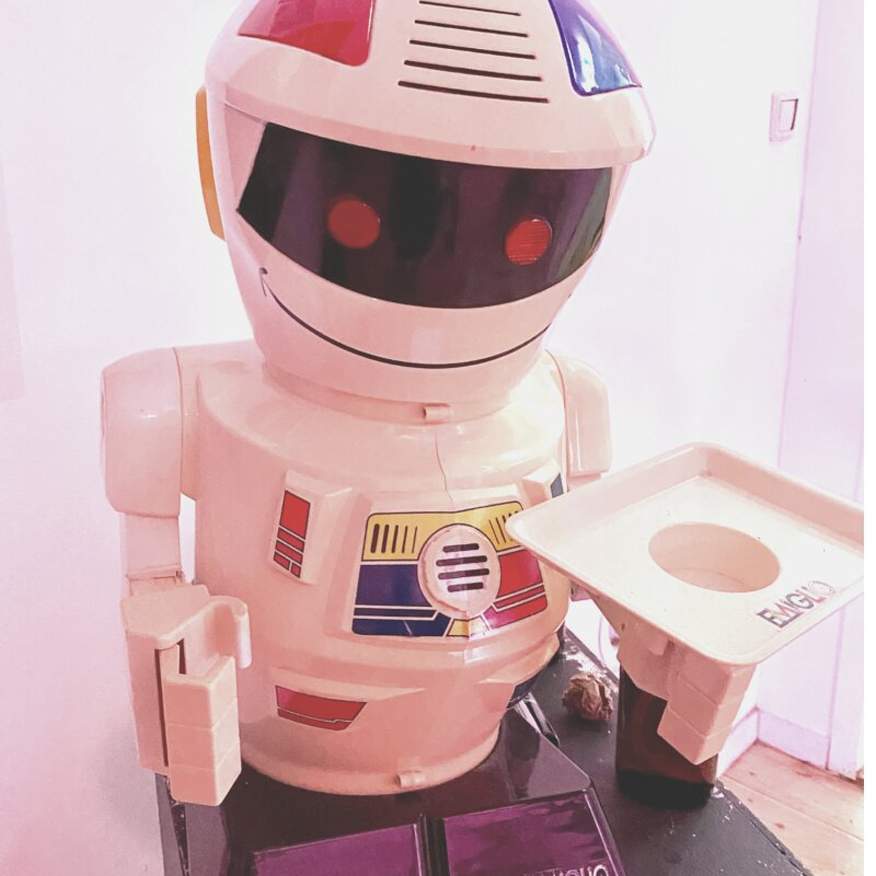
Photography series
Emilio says hi!
Emiglio is a nostalgic remnant of the 80s and 90s robotic toys. He (or it?) currently resides at the NEST Cultural Centre in the Hague, greeting visitors. First produced by the Giochi Preziosi Toy Company in 1989 under the slogan ‘Emiglio é meglio!’ (Emiglio is better!), he quickly became the most desired Christmas present for kids.
When16 June 2022
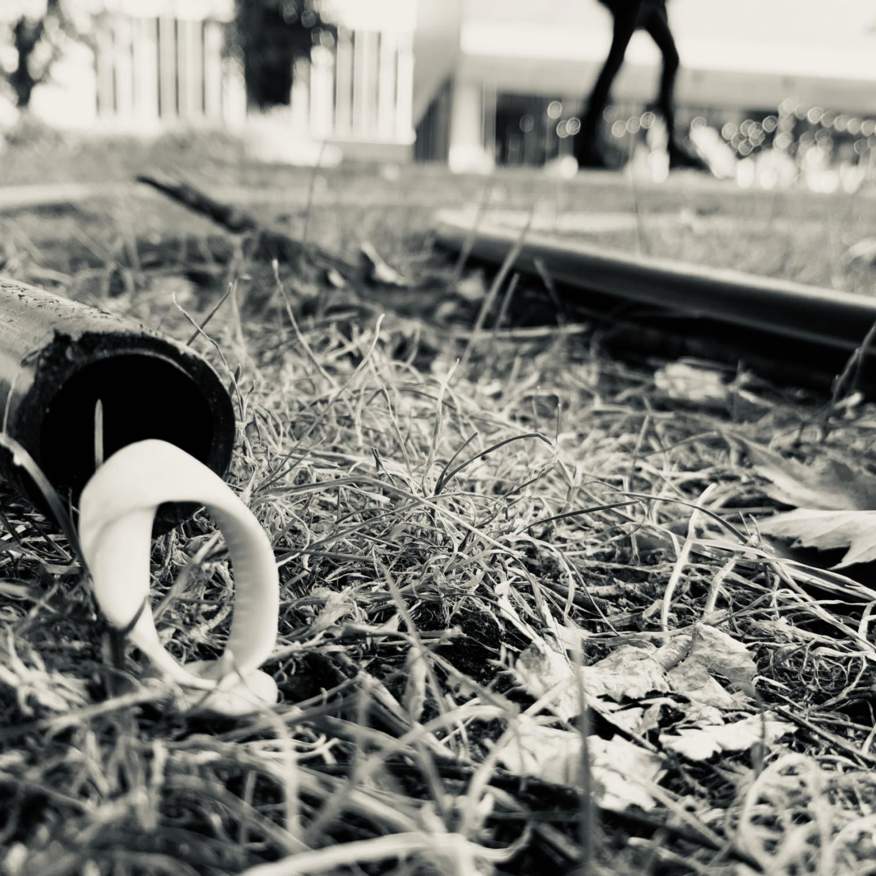
Photography series
Energy cornucopia
We buy woke second-hand coats. We put solar panels on our roofs if we have the luxury to do so. And we do our best to turn off the lights when we leave a room. But when all of society is fueled by green energy, there is no need for scarcity anymore. The time of abundance will come. Solar and wind are free and will be the cornucopia of energy. It will be too cheap to meter.
When16 June 2022
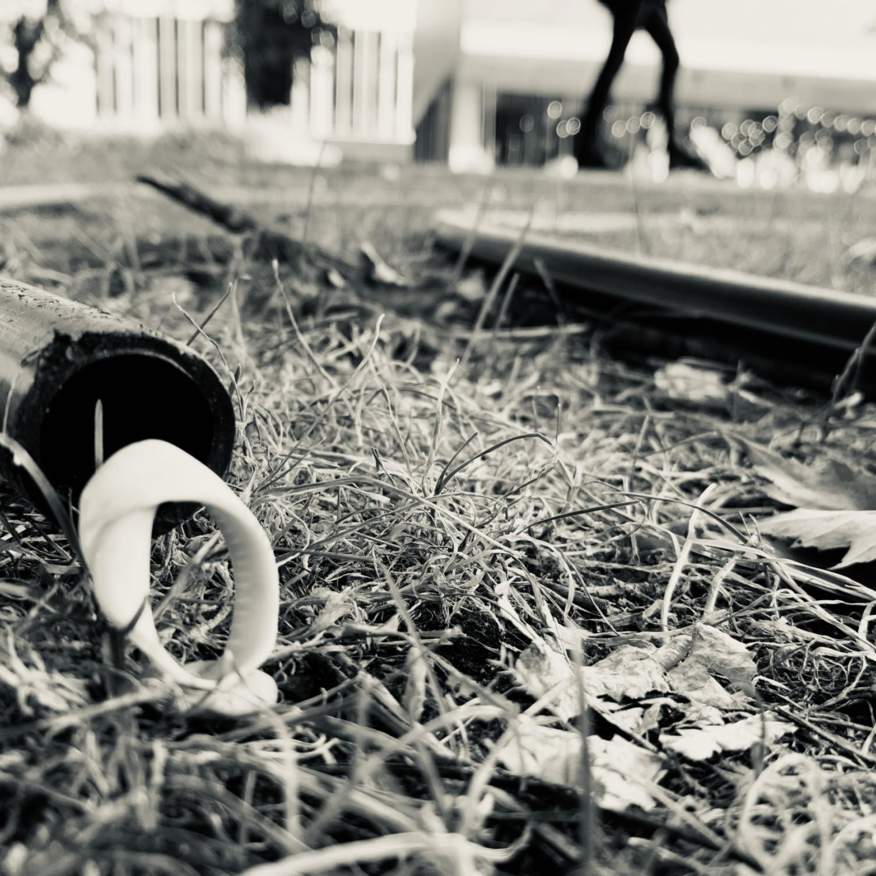
Original article Other
The paradox of renewable energy
We buy second-hand coats. We put solar panels on our roofs when we have the luxury to do so. And we do our best to turn off the lights when we leave a room.
When16 June 2022

Photography series
Traces of digital disruption
Sometimes, the online and the offline world cross paths. Here, you see an analogous trace of the disruption of our daily lives by the digitization of society.
When16 June 2022

Photography series
Man and/or machine?
The development of robots with human-like AI and a human-like appearance may reshape our ideas of our own humanity. In this photo, the statue of a human figure is unclear, representing how, as humanoid robots may become more human-like, the distinction between man and machine may become less distinct.
When24 May 2022
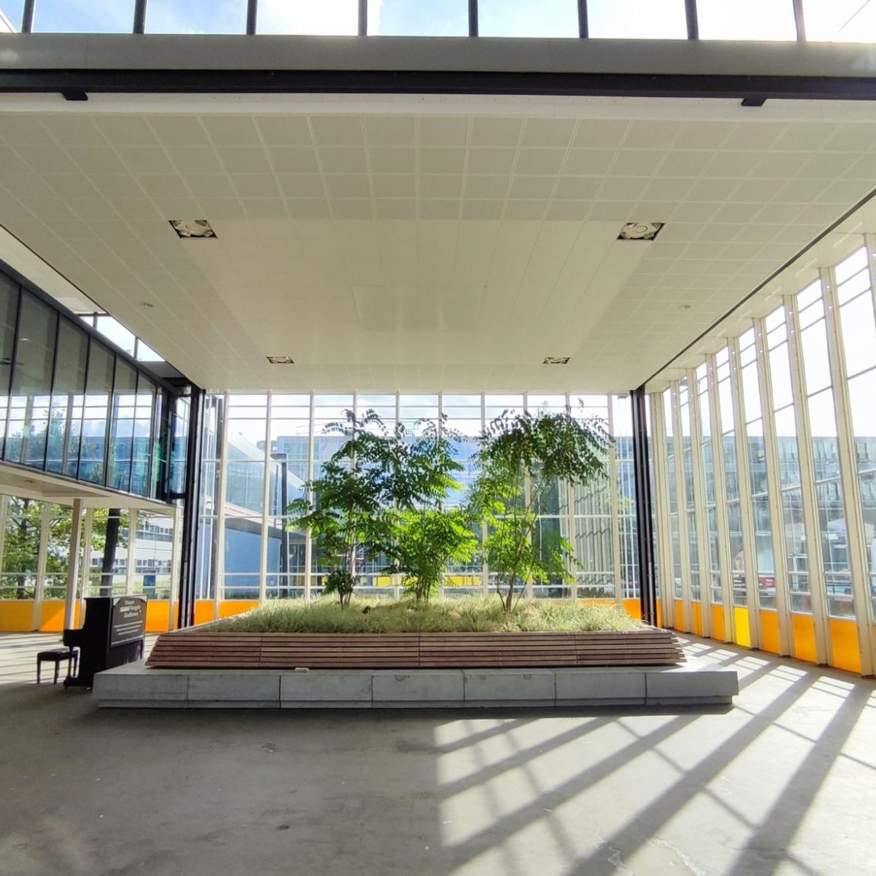
Photography series
Nature in a box
Is nature a background or a commodity? Here we see the latter, enclosed within a human-sized architectural space that presents it as docile and ready-to-gaze. While urban green is usually a reassuring presence, the heavy architectural elements seem to constrain and stifle any natural impulse, served in a box for our enjoyment. Will future generations appreciate this kind of present?
When24 May 2022
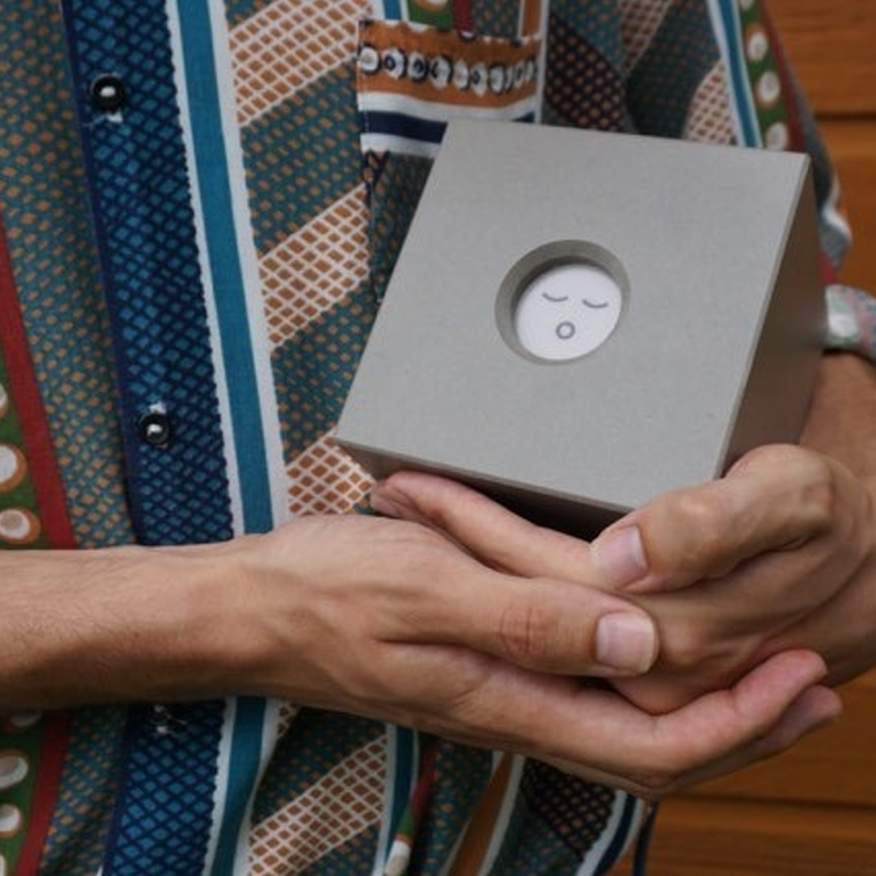
Photography series
So long, Blockbot
Robots are leaving factories and are entering the human inhabited environment. This has caused great uncertainty on how their presence will affect not only human robot relations but also human human relations. Will perceptions of robots shift from an object to an artificial creatures that people are disposed to socially interact with? And will our ability to care for our artificial children affect relationships between other humans?
When24 May 2022
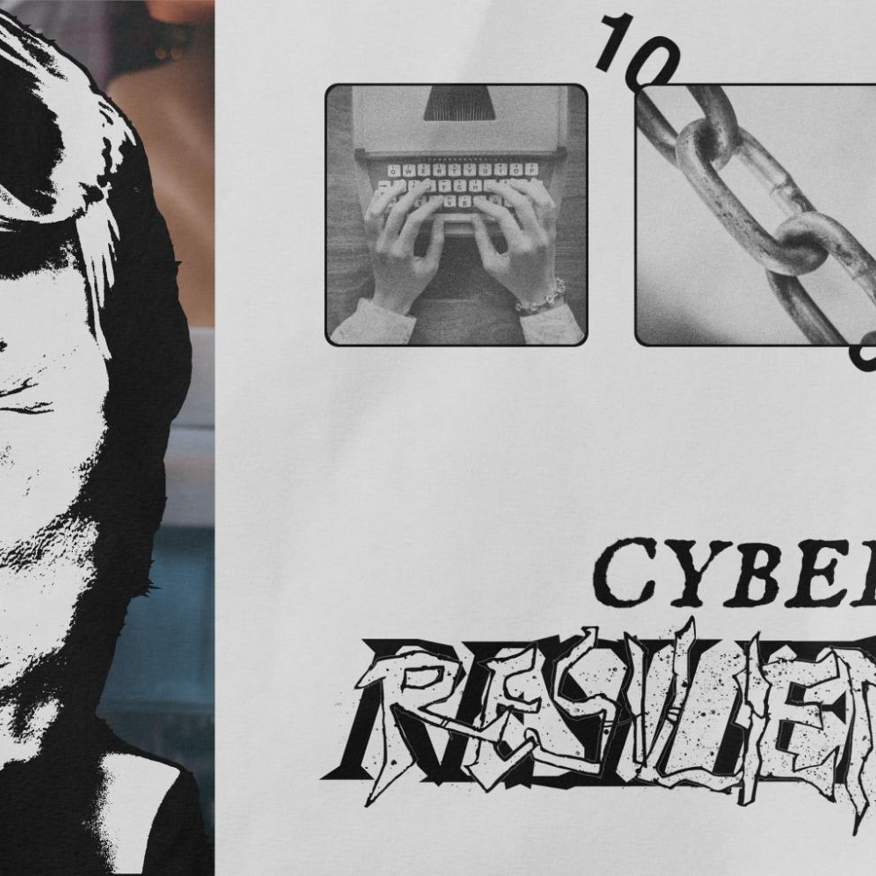
Original article Other
How to become more cyber resilient? Look at the ethical hackers!
Two weeks before the 2020 presidential elections in the US, a Dutch ethical hacker guessed the Twitter password of former president Donald Trump. He didn’t need any technical skills, only a few guesses. He tried variations of Trump’s slogan ‘Make America Great Again’. With maga2020! he got in. As an ethical hacker, he knew what to do. Gather evidence and get the hell out of there. Do not do more than strictly necessary to disclose the vulnerability responsibly.
When14 May 2022
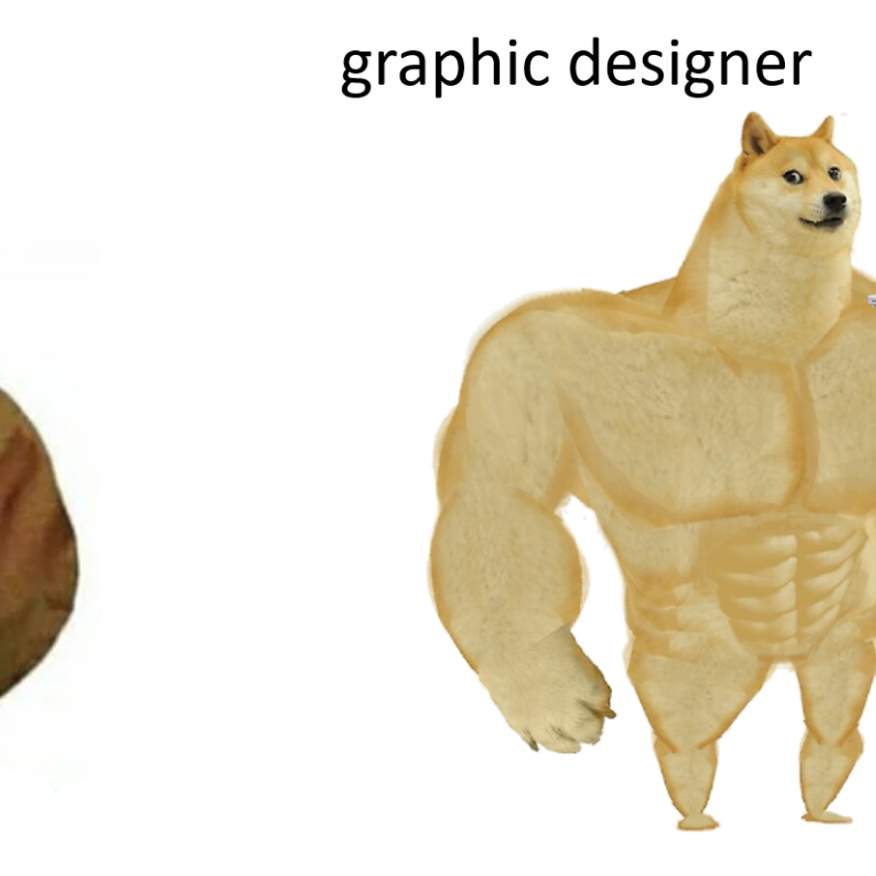
Memes series
Do Not Hire a PhD Student, Hire an Illustrator
For all senior academics working in the philosophy of technology, here is a wild idea. Next time you have a project, and you can hire someone; don’t hire a PhD student, hire an illustrator. Here’s why.
When11 April 2022
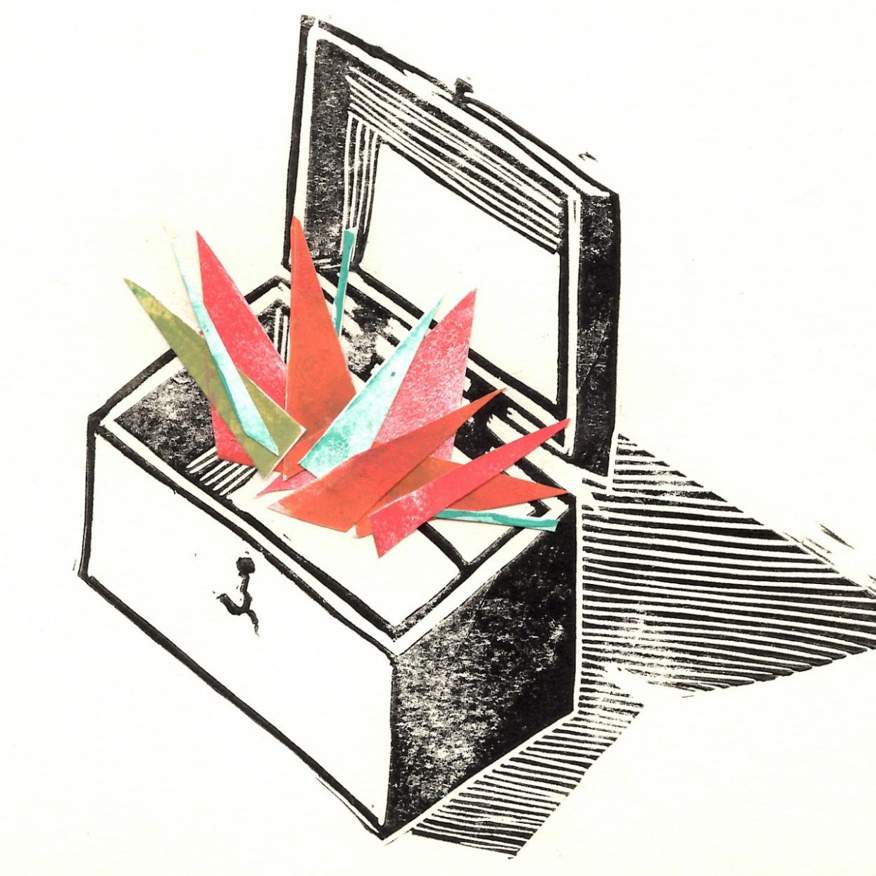
Introduction to series Memes series
IT’S OUT OF THE BOX!
At the 2021 4TU.Ethics bi-annual conference on Ethics and Technology we, a group of 4TU.Ethics PhDs, decided to give the conference’s motto “IT’S ALIVE” a twist. In our symposium “It’s out of the box”, we had just one rule – break as many rules as possible; discursive rules, that is.
When10 April 2022
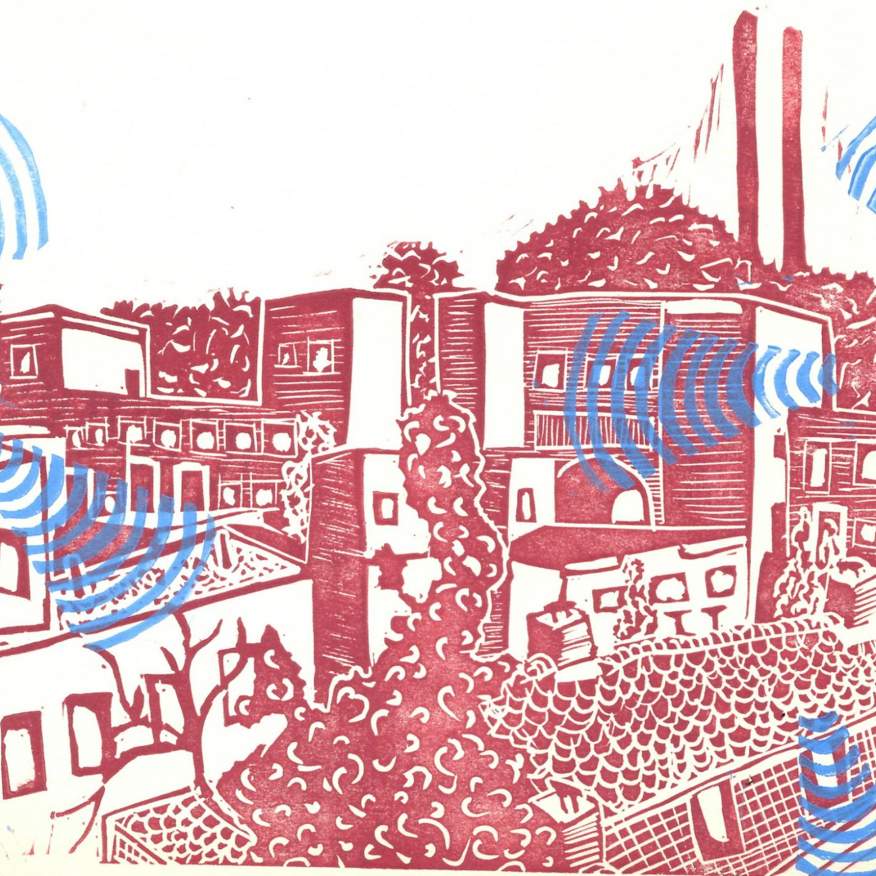
Memes series
Smart Cities
Hi there, reader. I imagine you are someone interested in philosophy…or perhaps you were searching the internet for memes and stumbled your way on to this blog. In which case, welcome to the 4TU Ethics website, please take your time and look around!
When27 March 2022
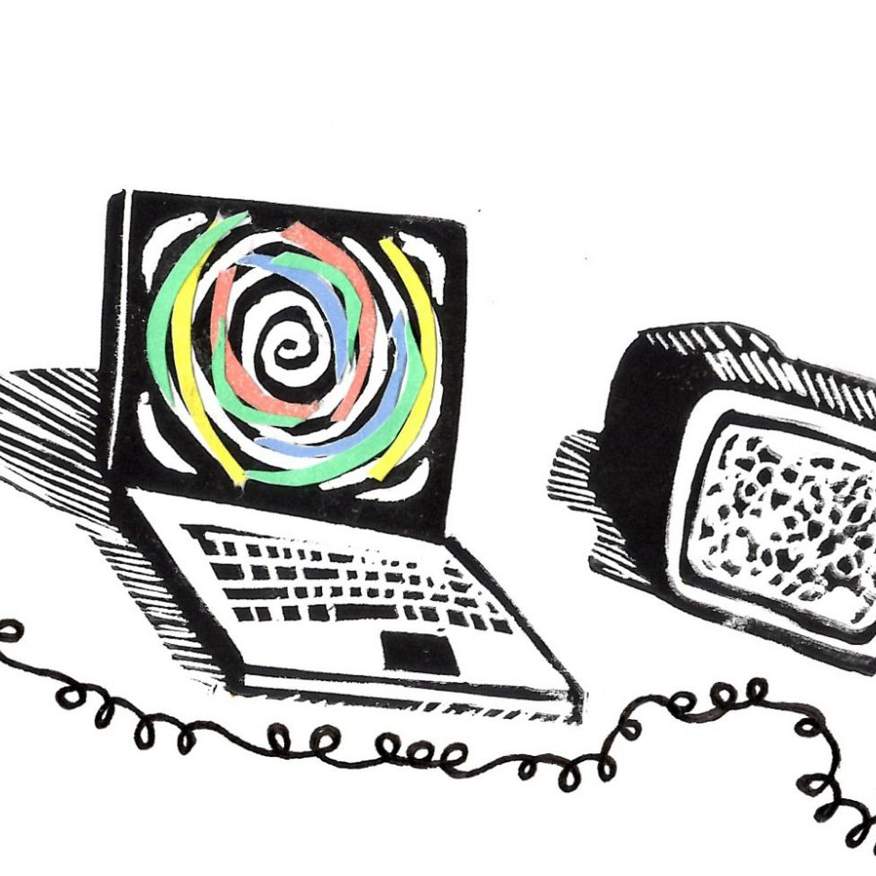
Memes series
Mapping out Responsibility
The media landscape has changed quite drastically over the past two decades, as the legacy media of old (e.g. radio, newspapers and cable television) has become outpaced by the smartphone and internet as the sites of media consumption and content creation. As the world becomes increasingly mediated by a suite of devices and digital platforms, how has the communication of ideas been affected?
When22 March 2022

Memes series
Self-Censorship around Smart Cameras
Imagine a future with smart cameras everywhere, watching your every move. When you’re at work, at school, getting groceries, driving on the highway, or even when you’re at home watching a movie on your smart TV.
When20 March 2022
HomeBlog



